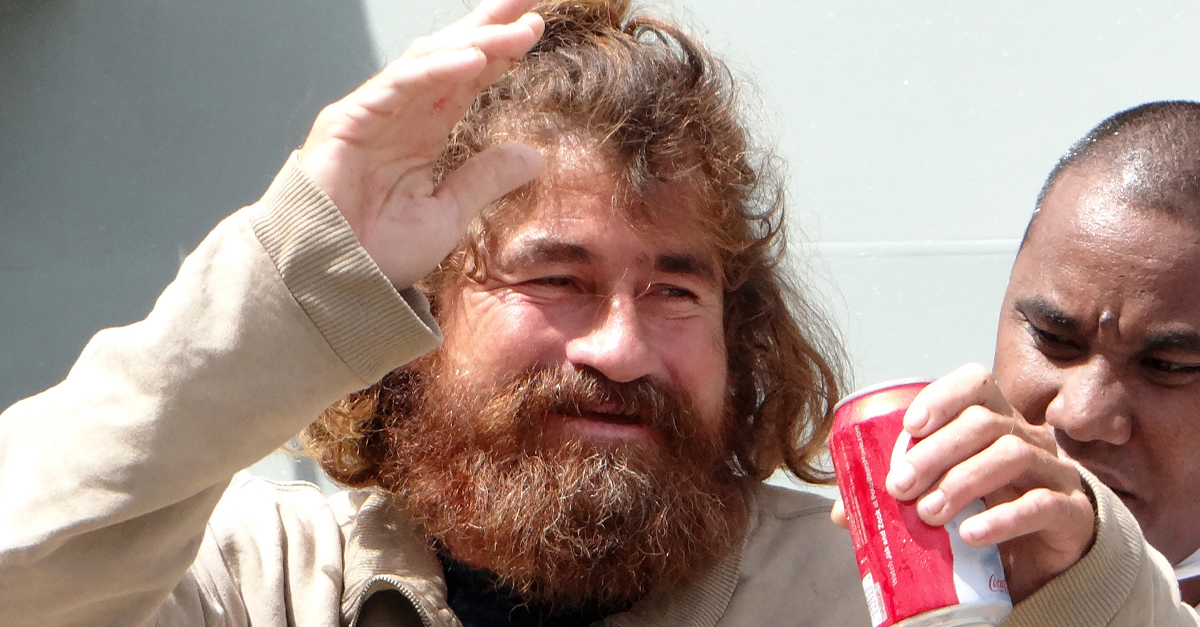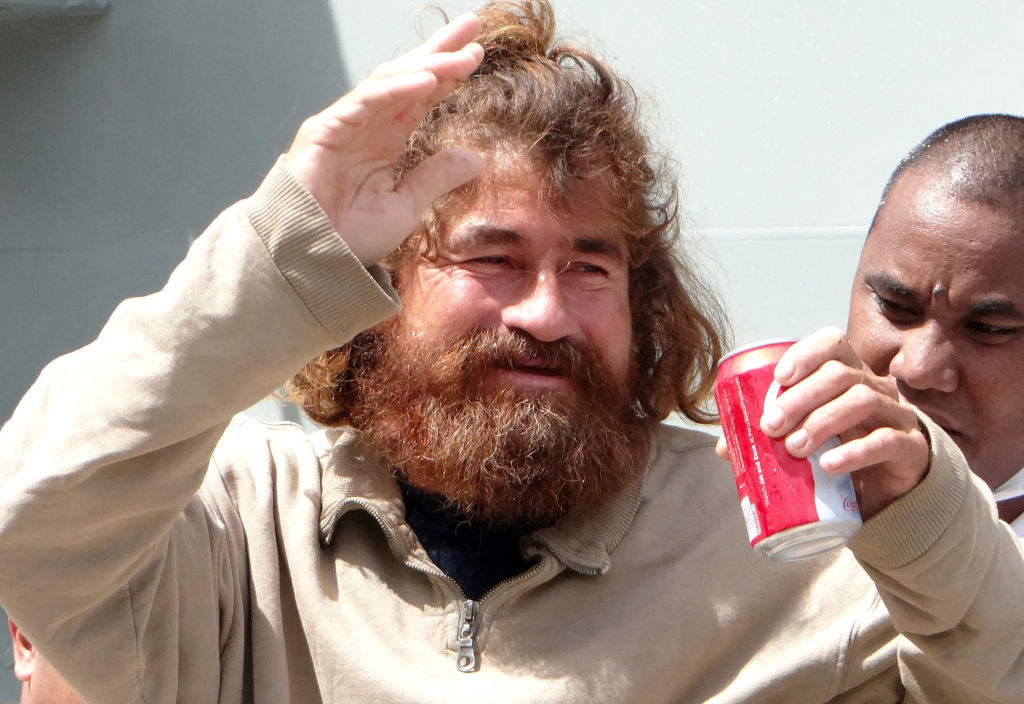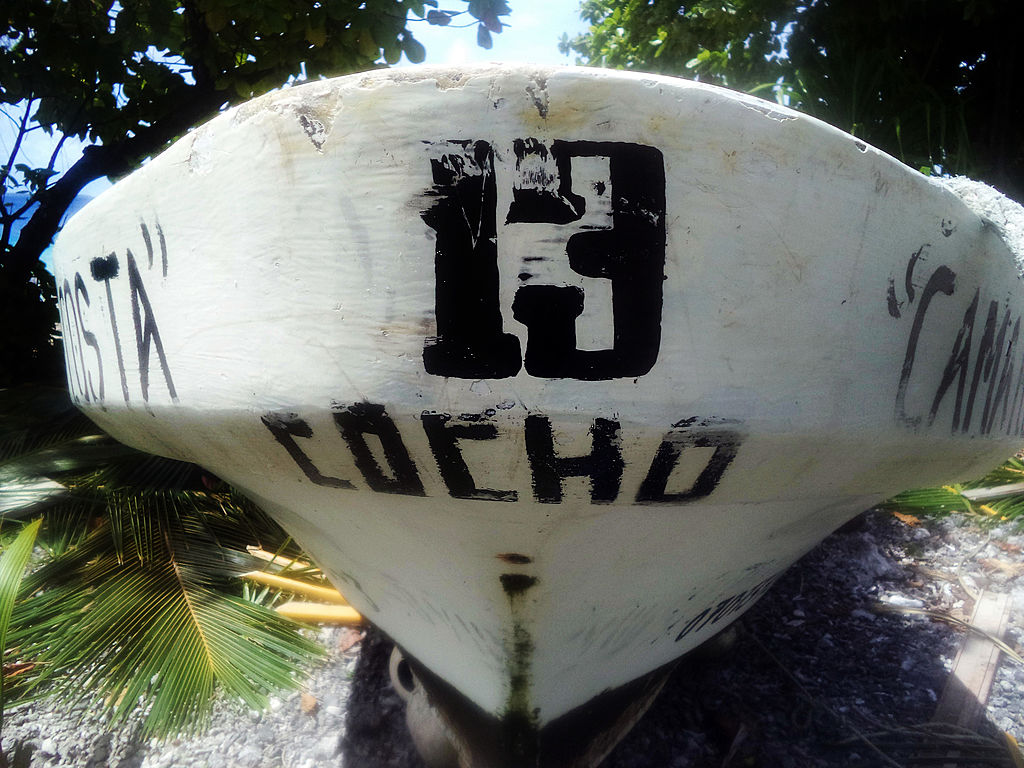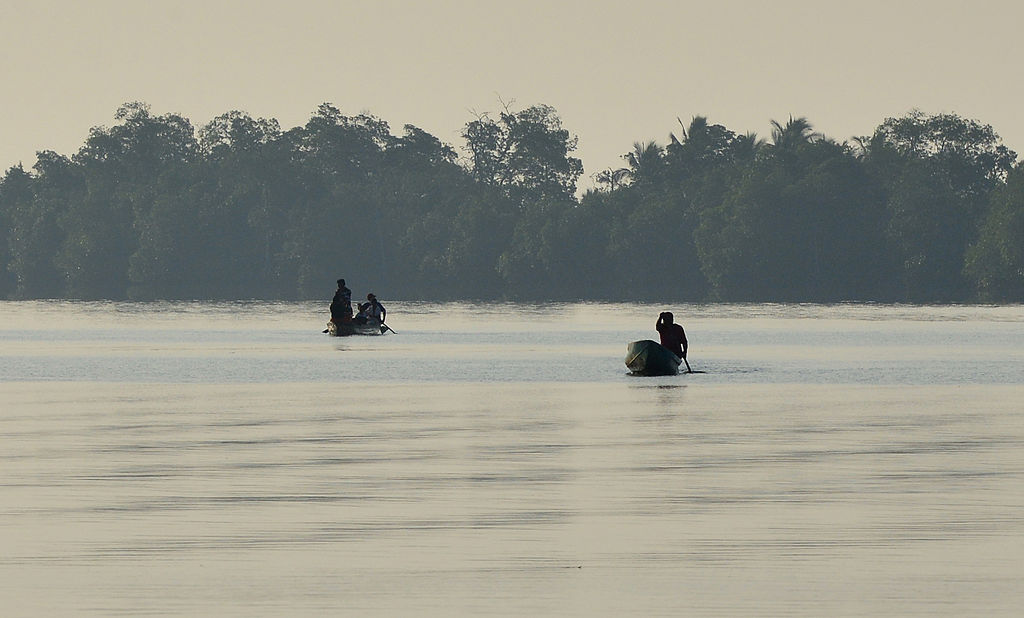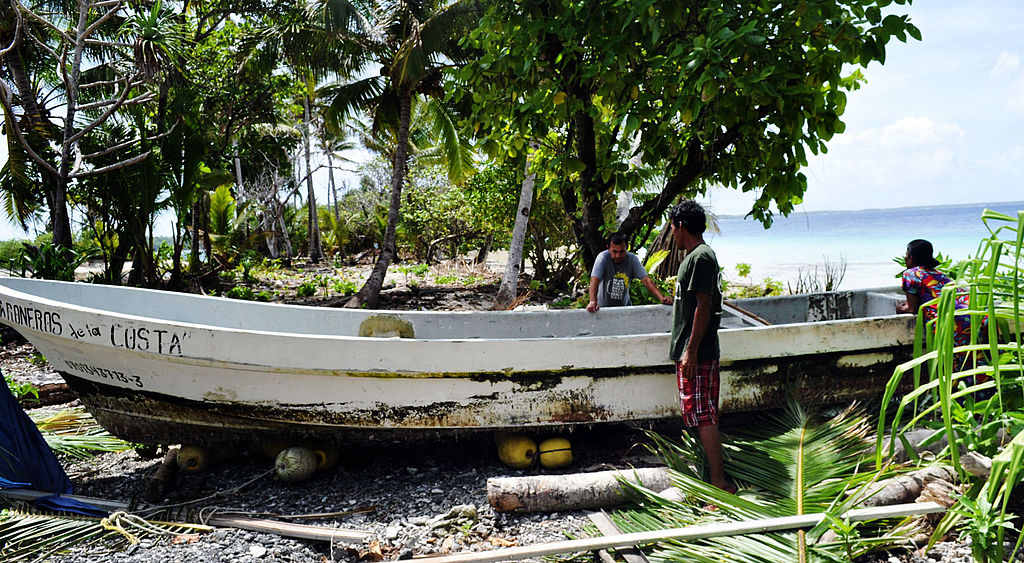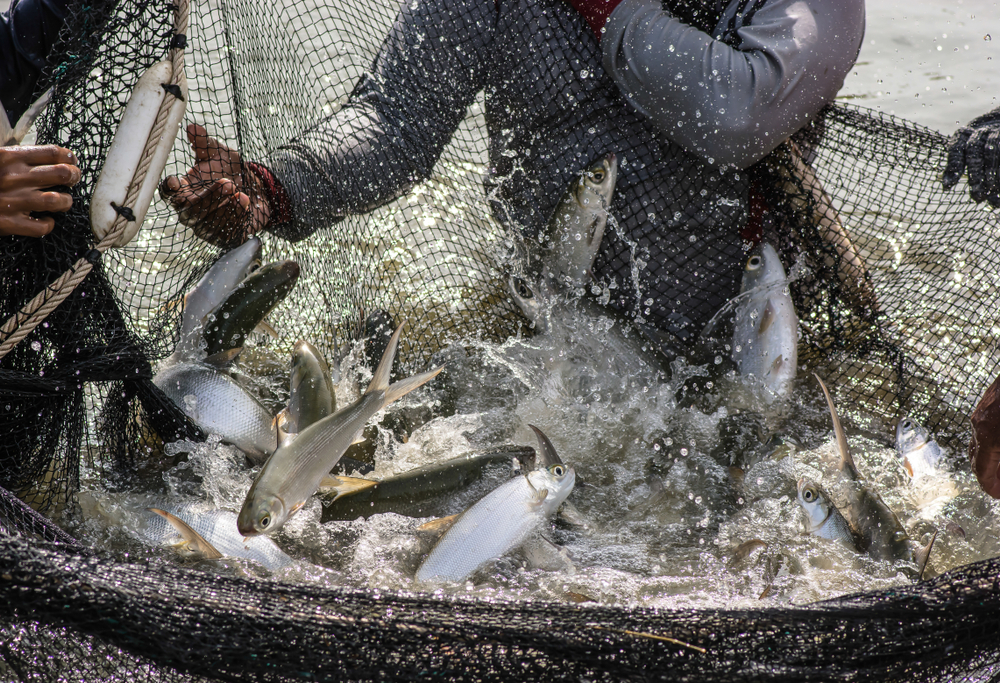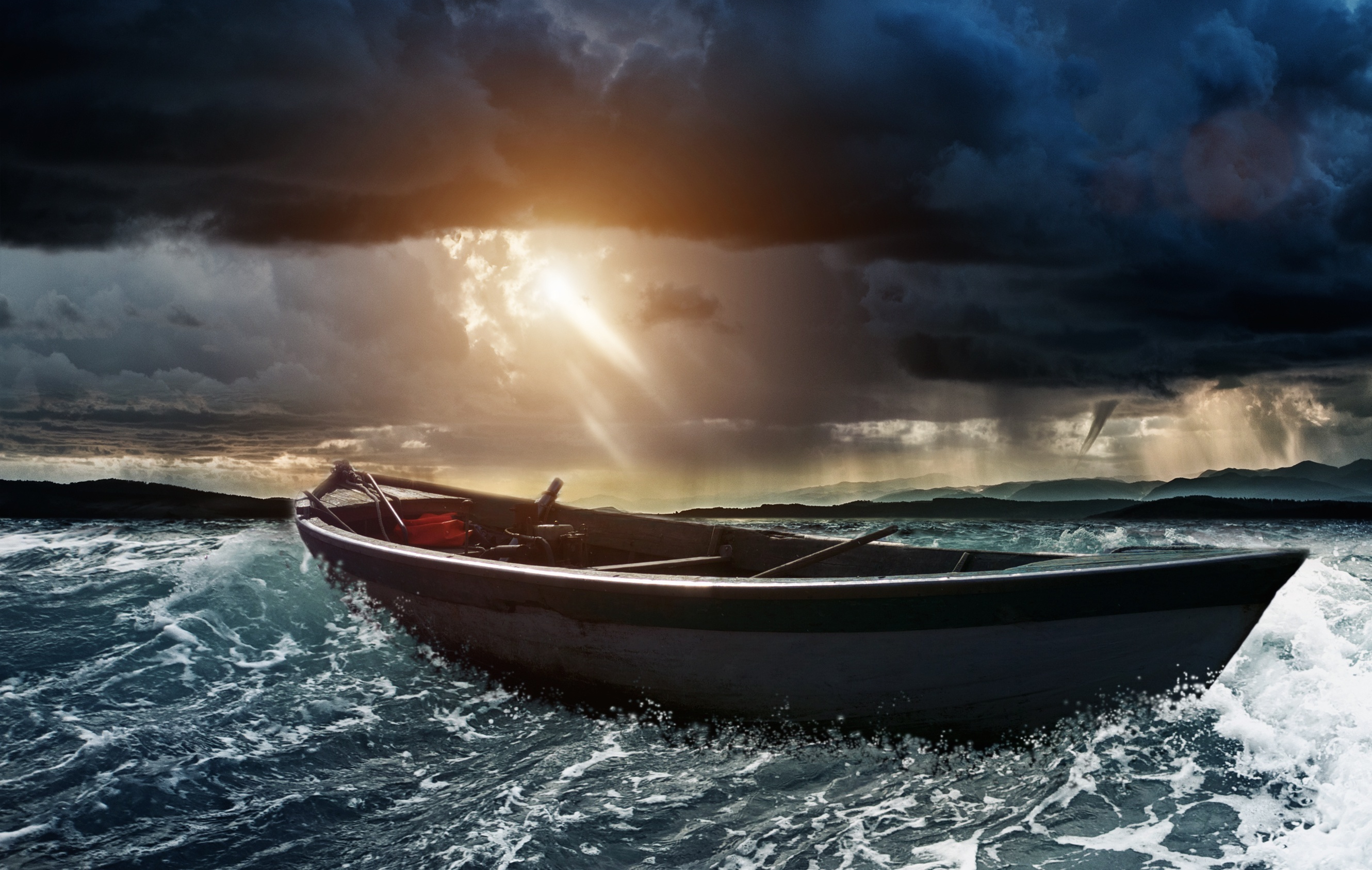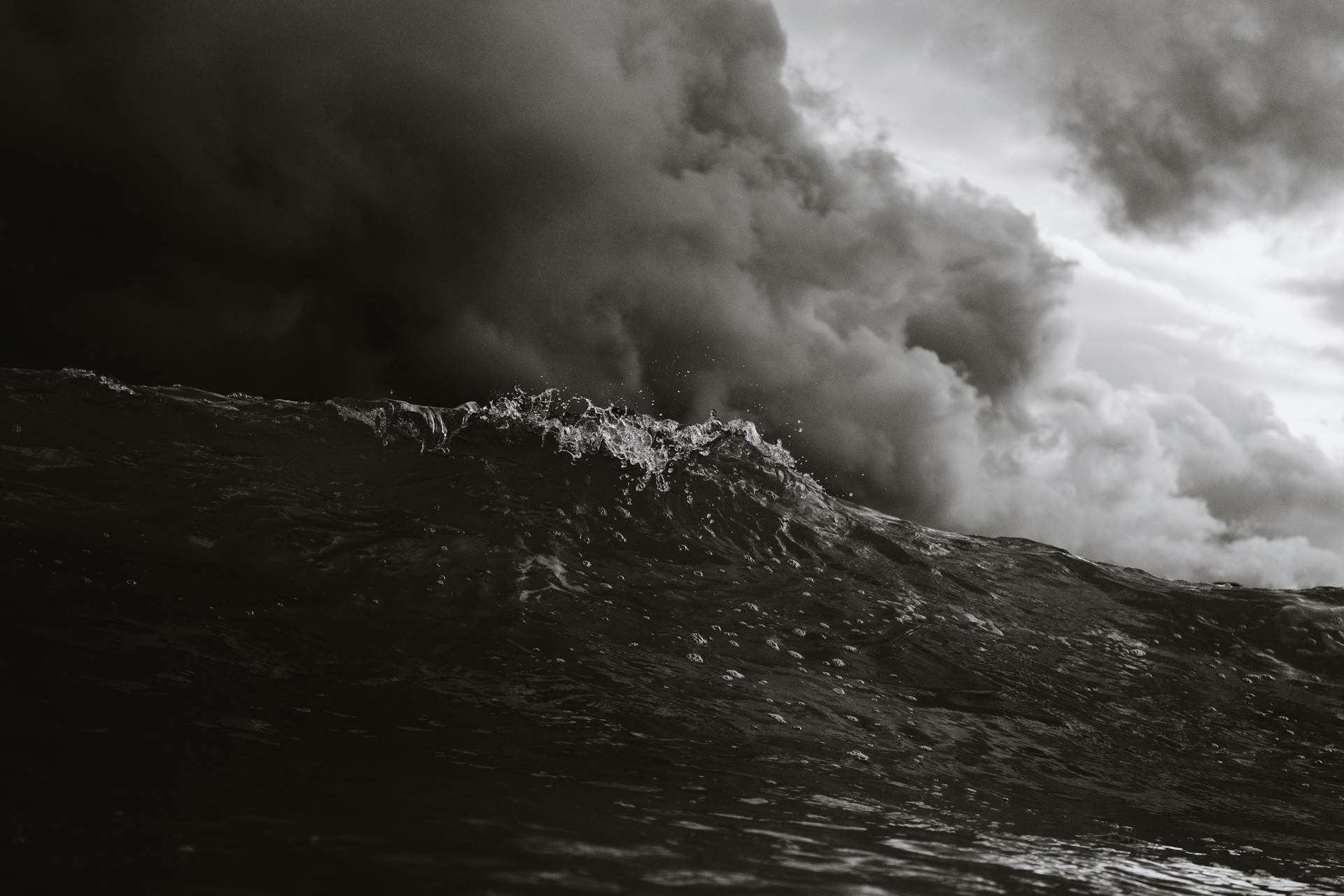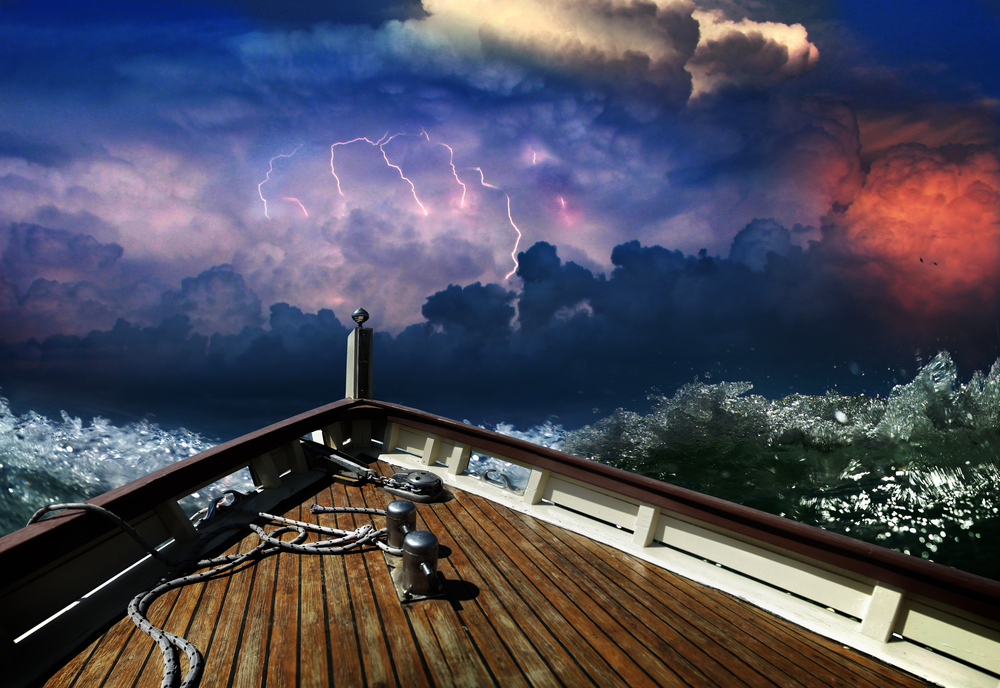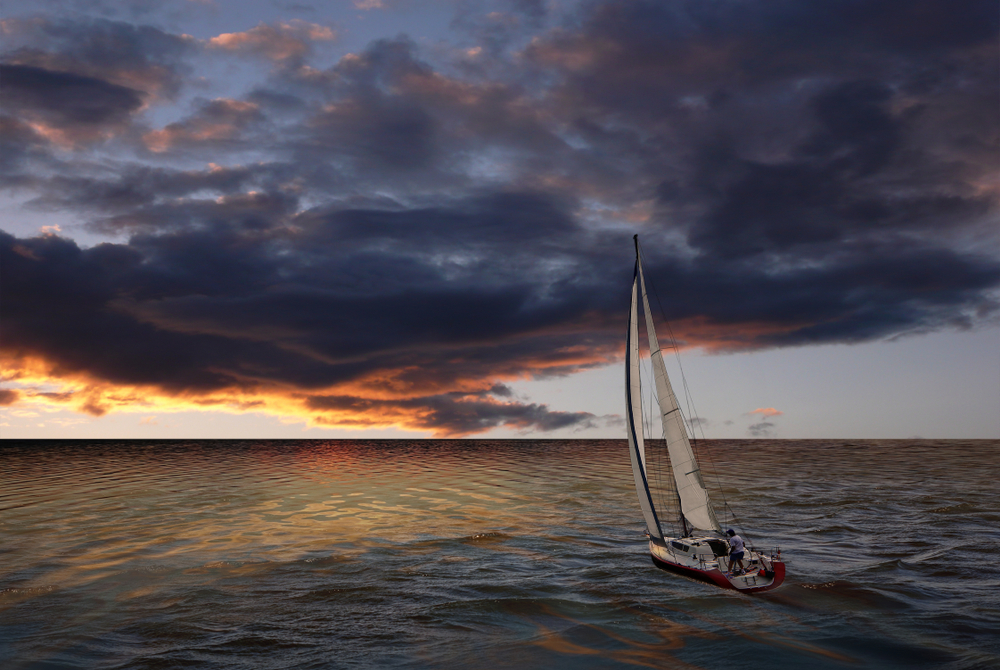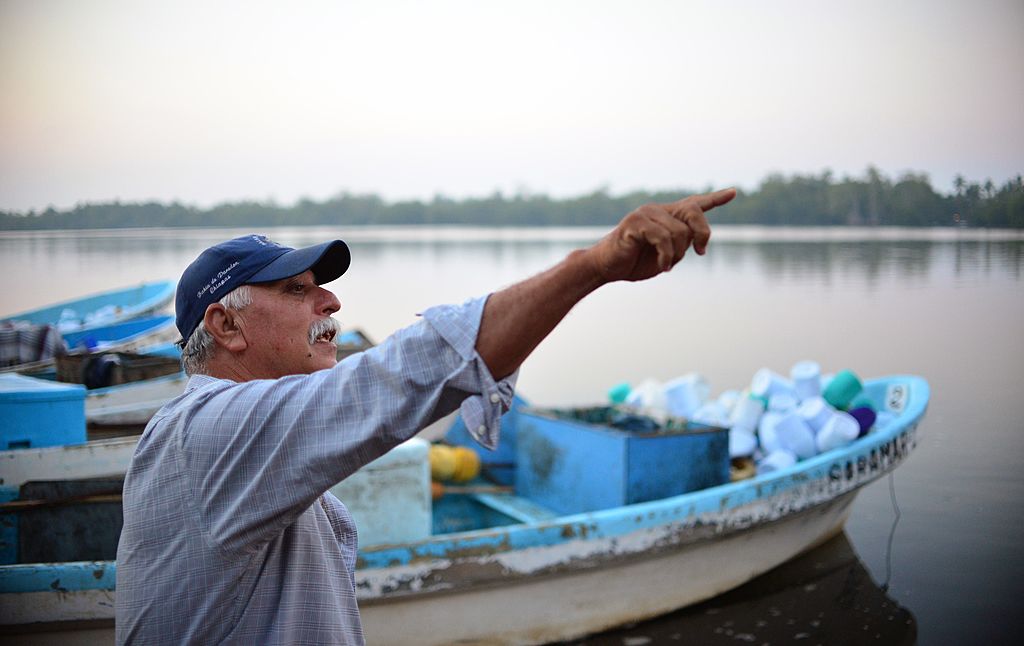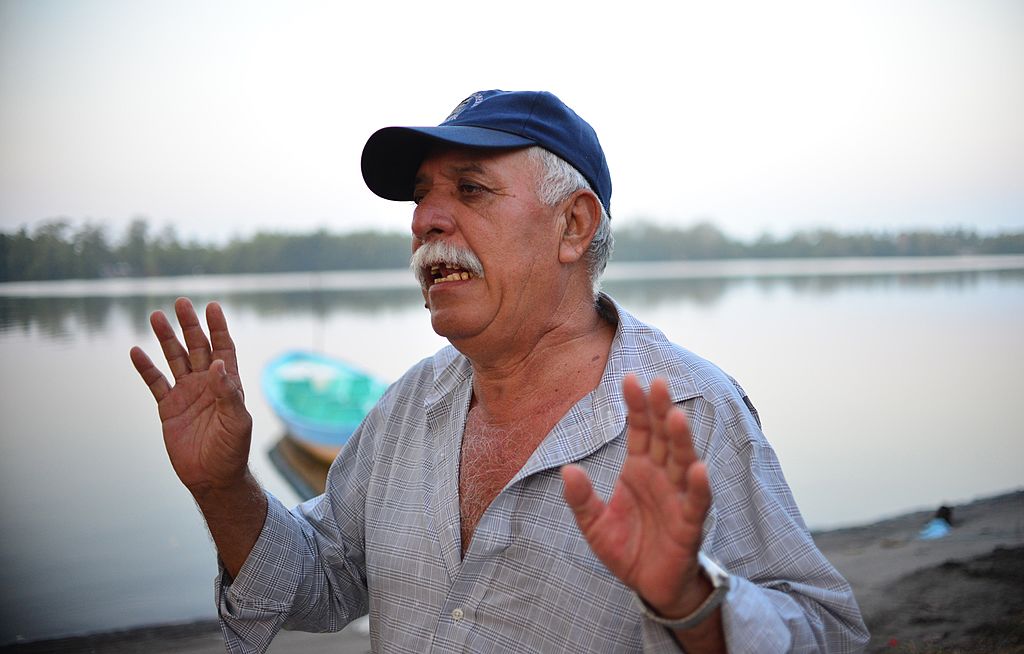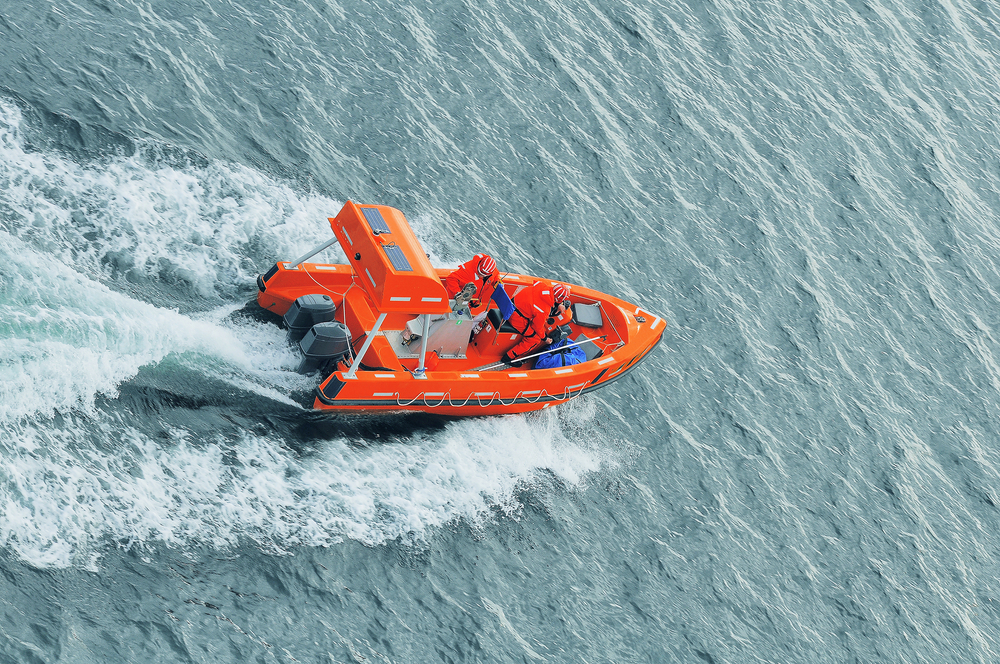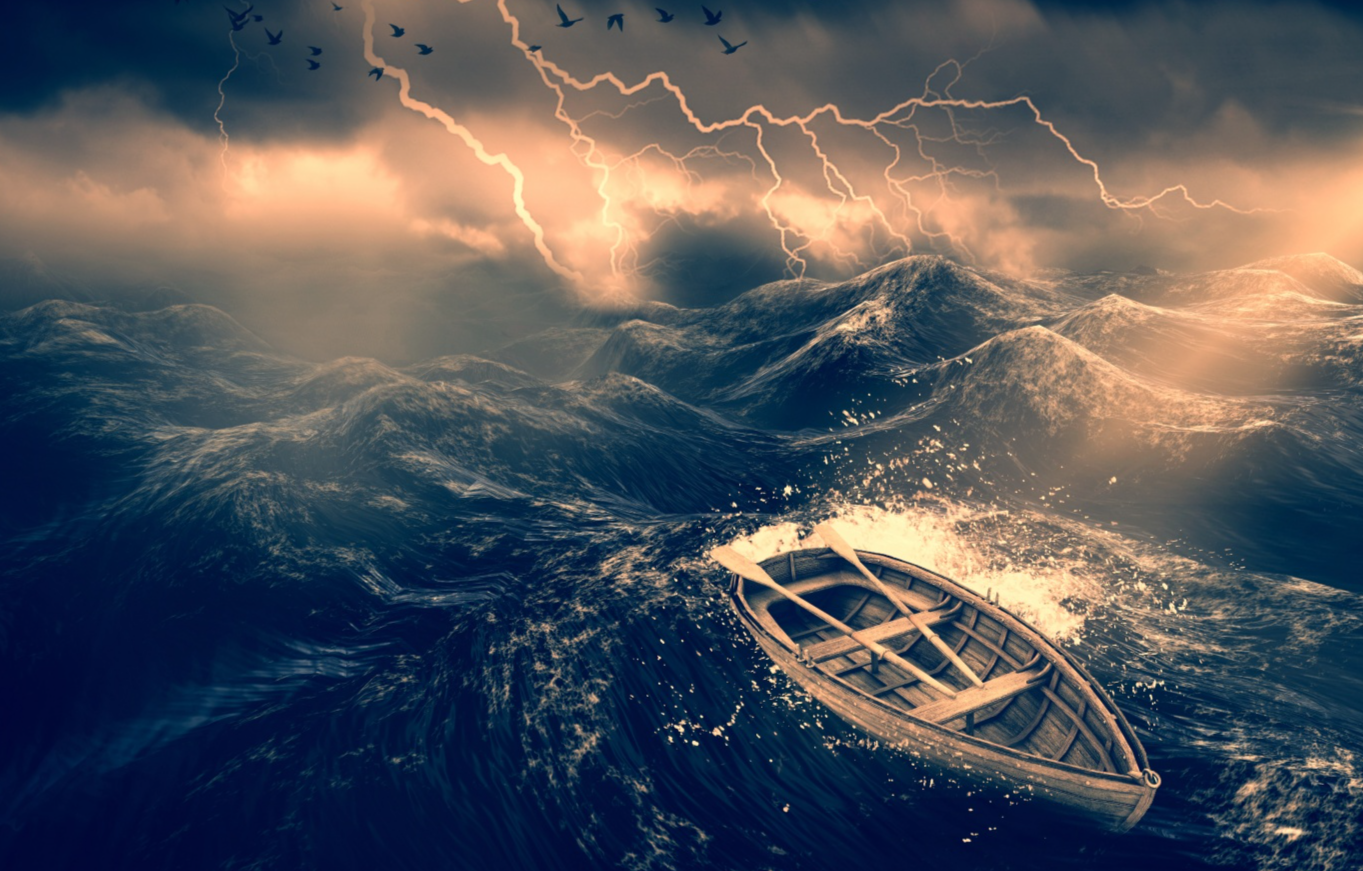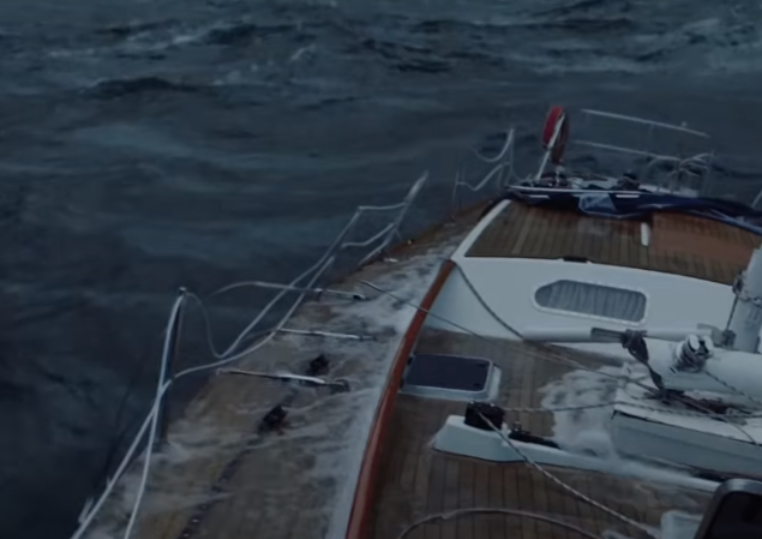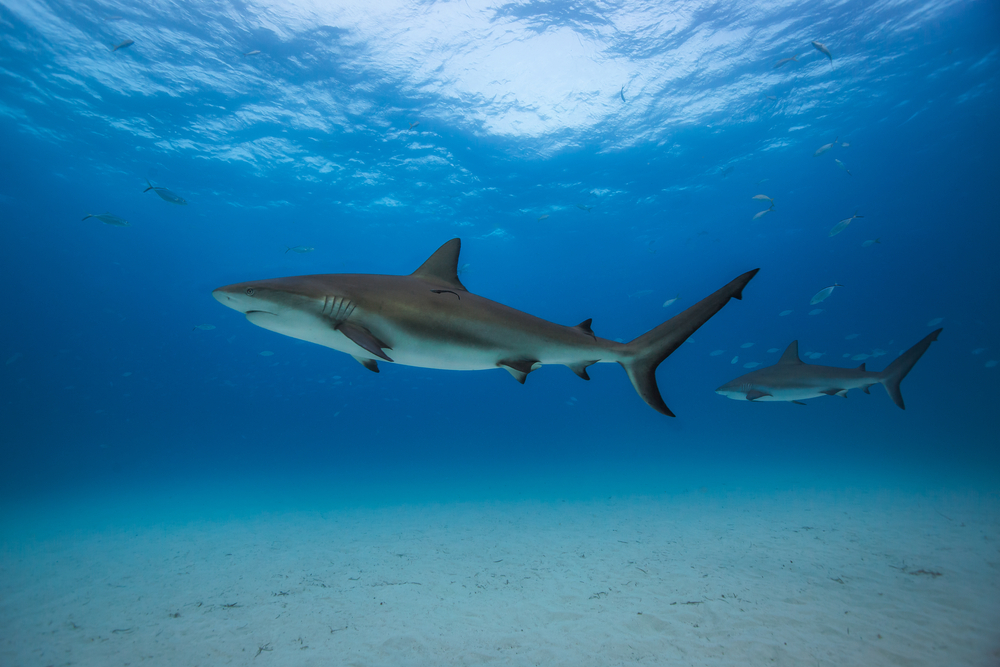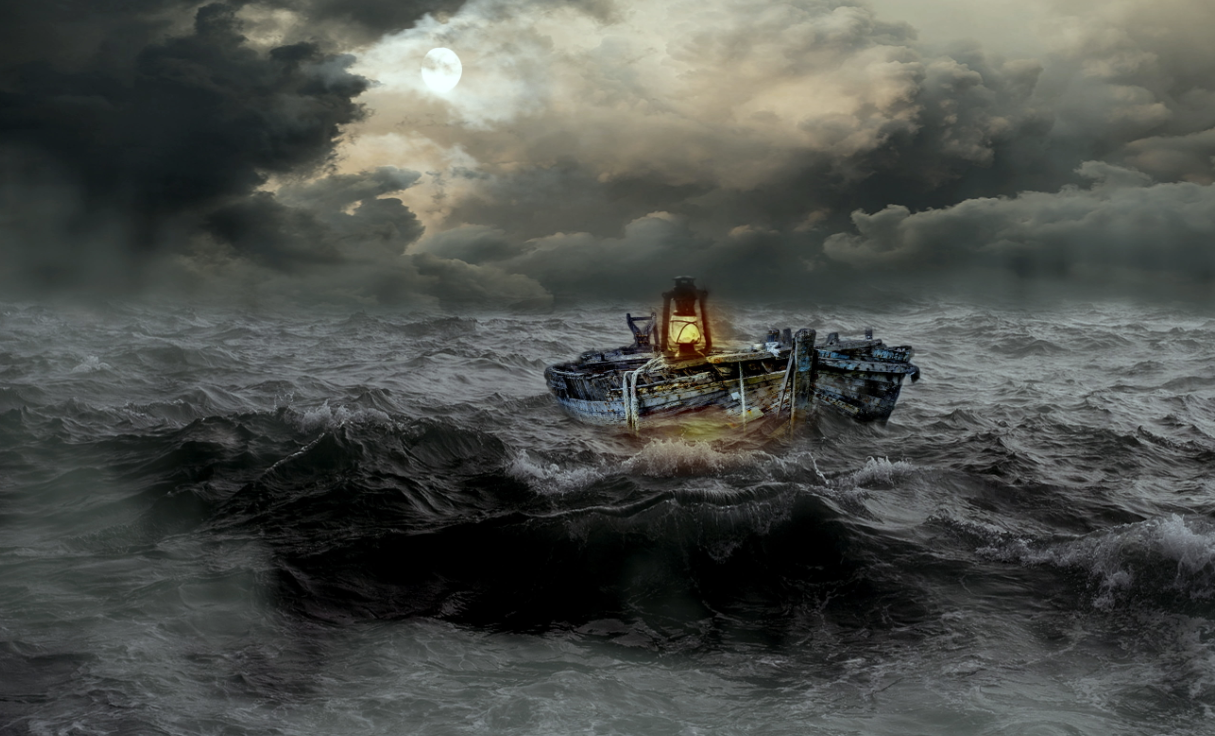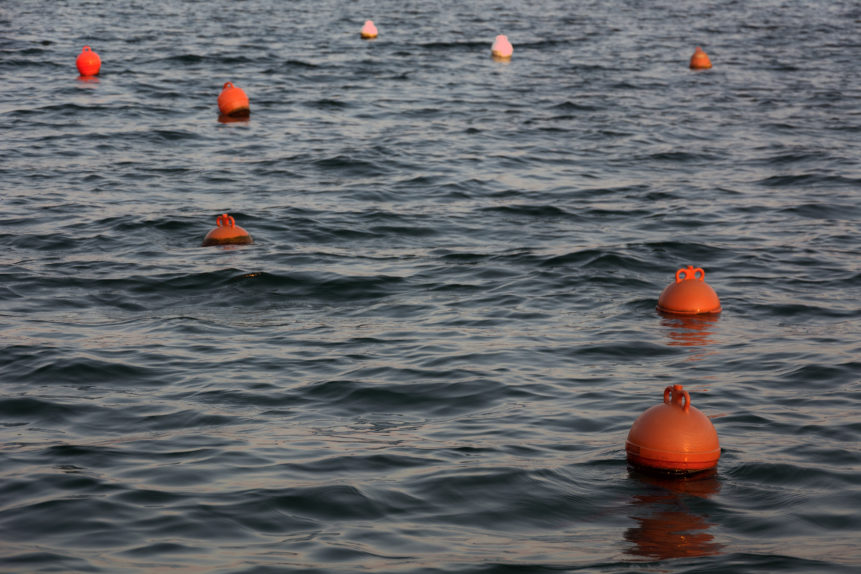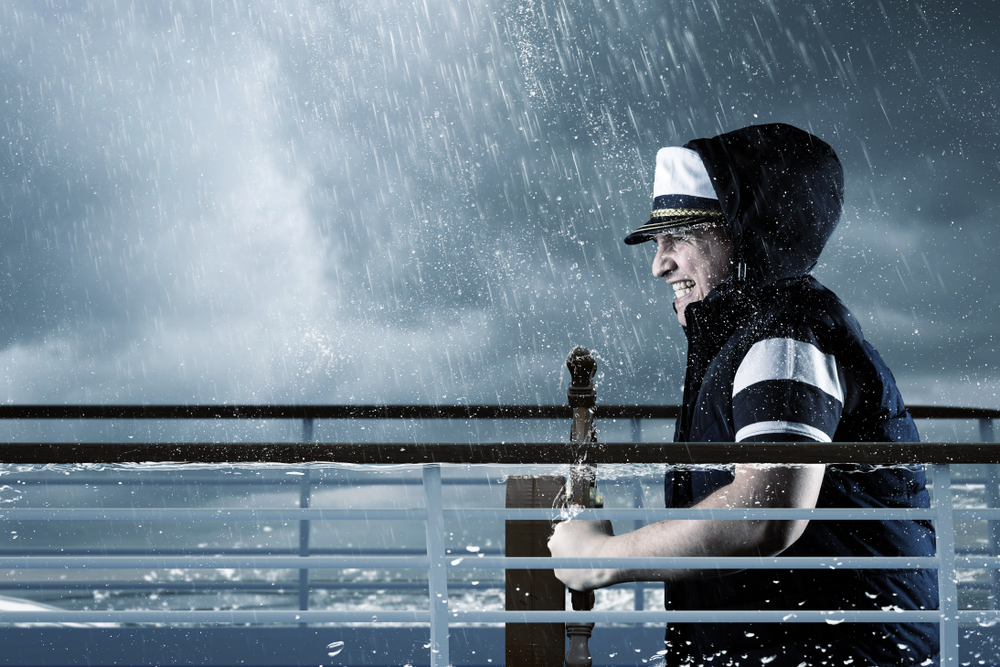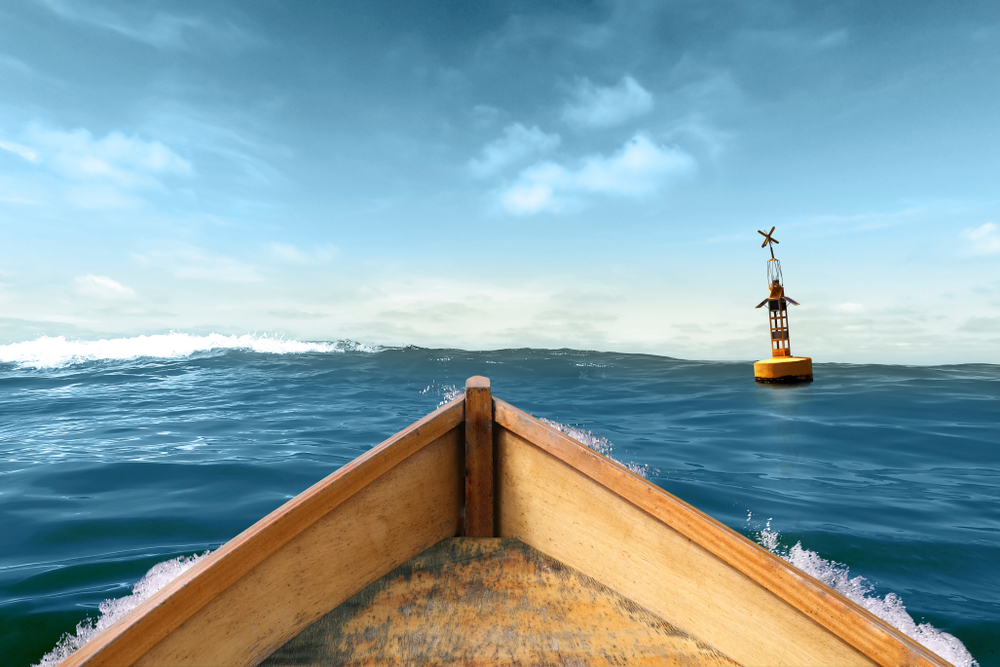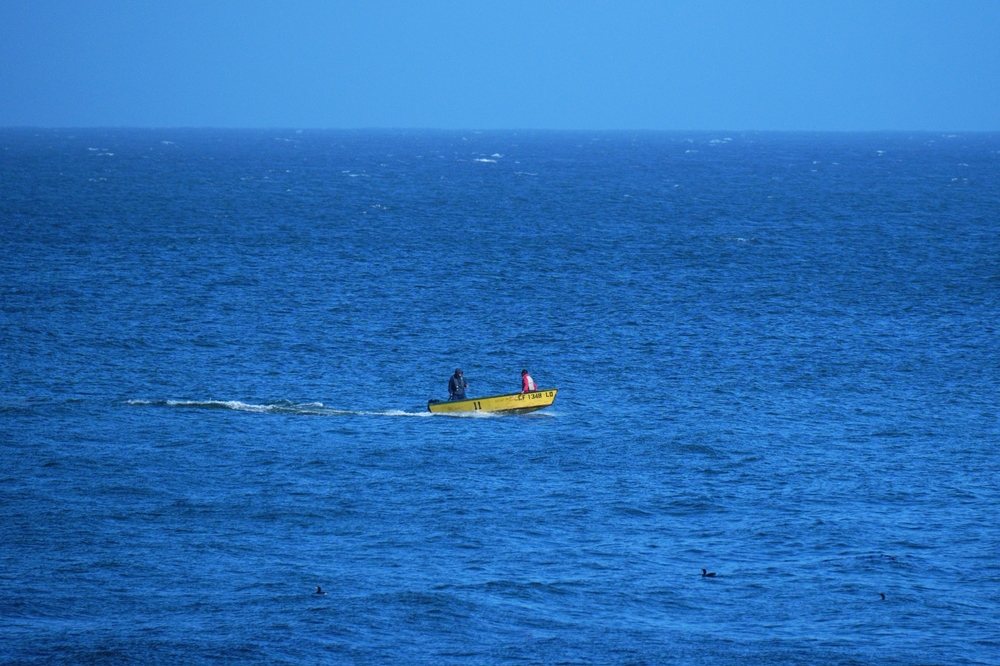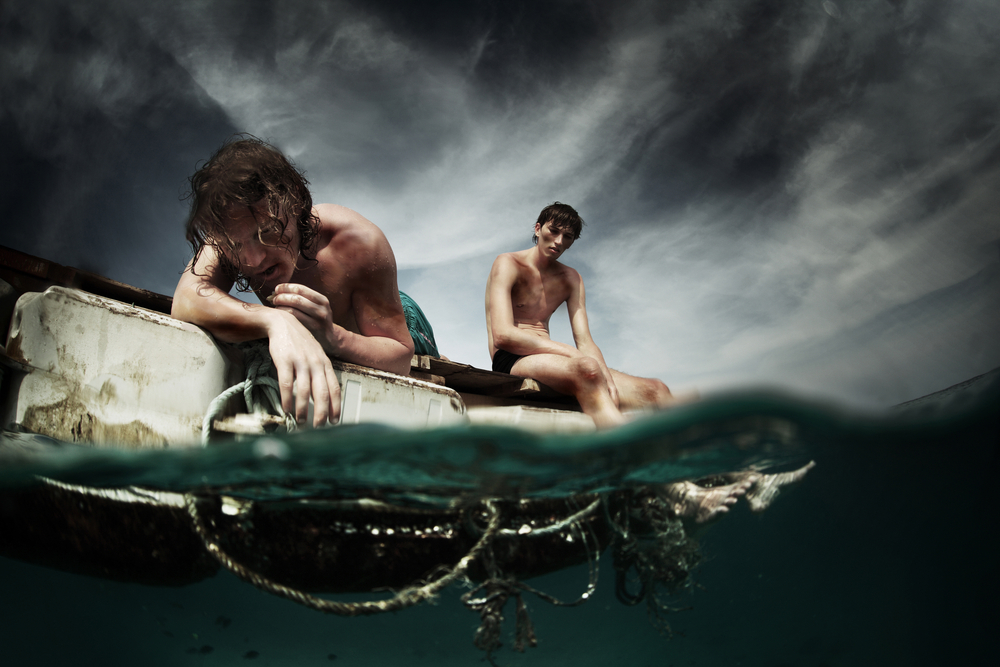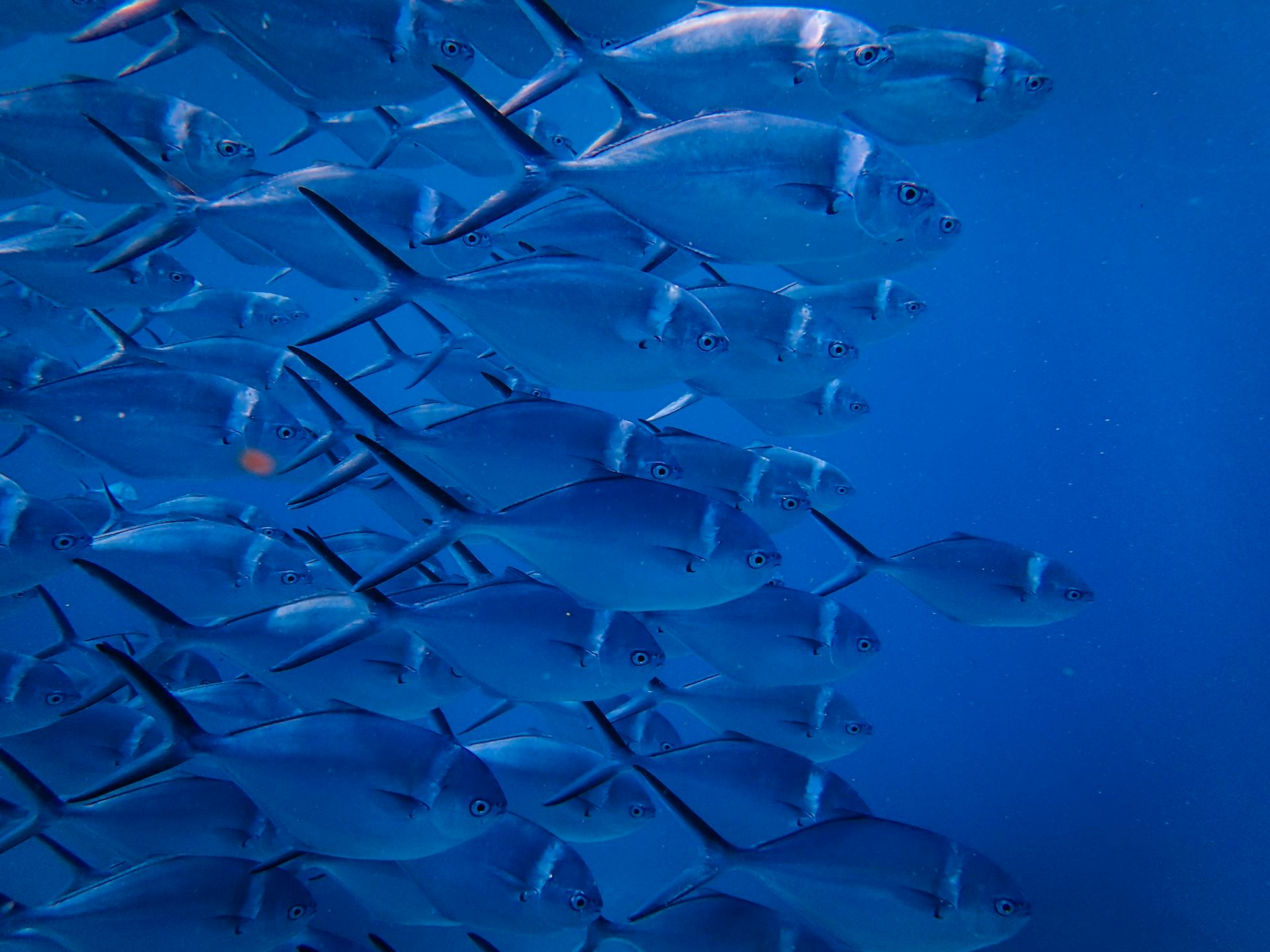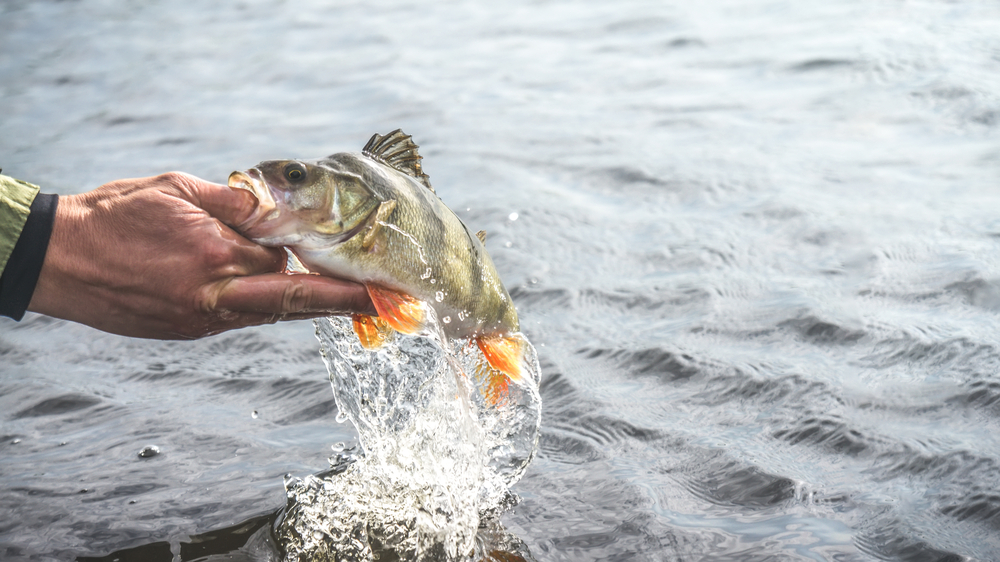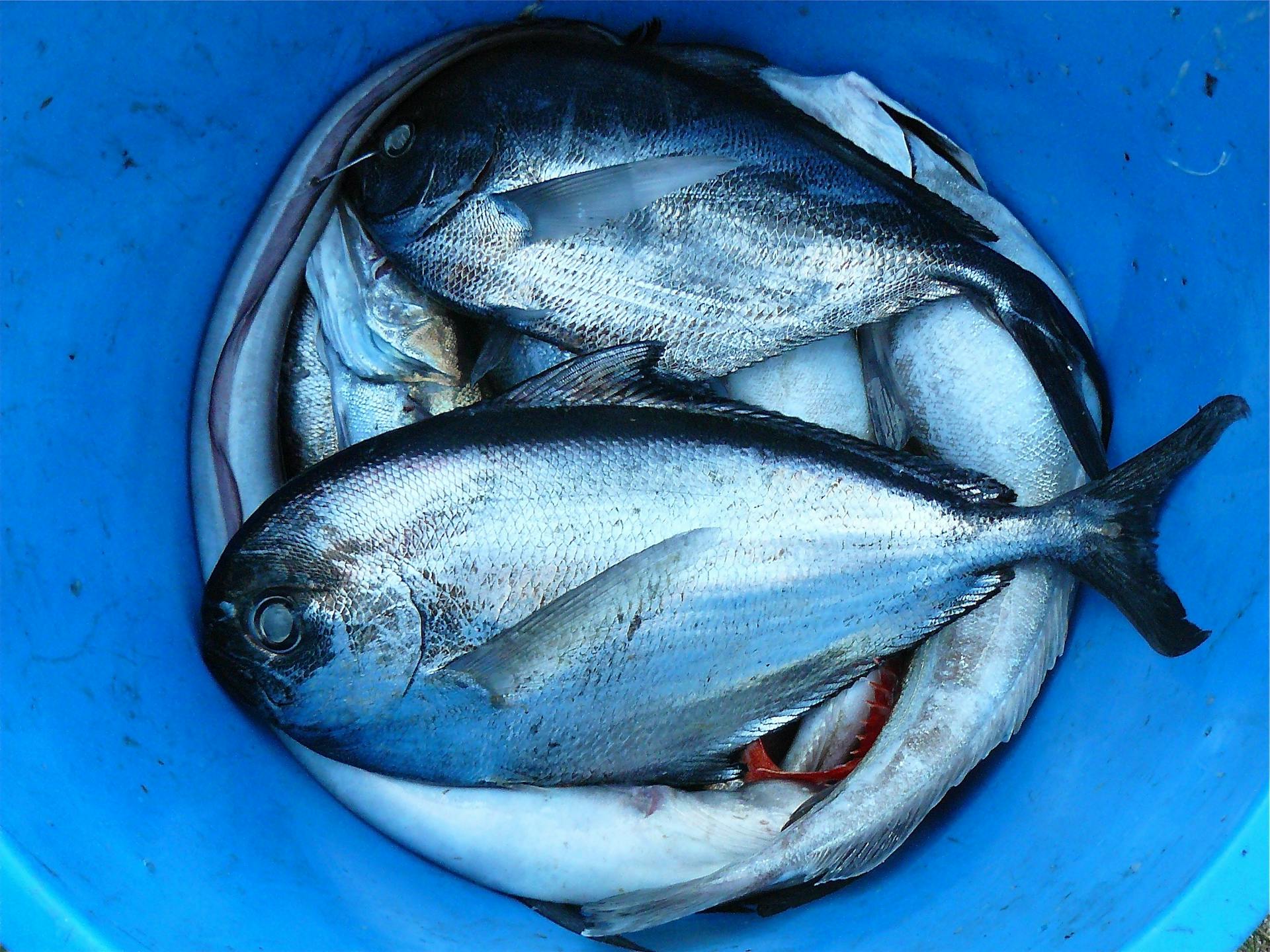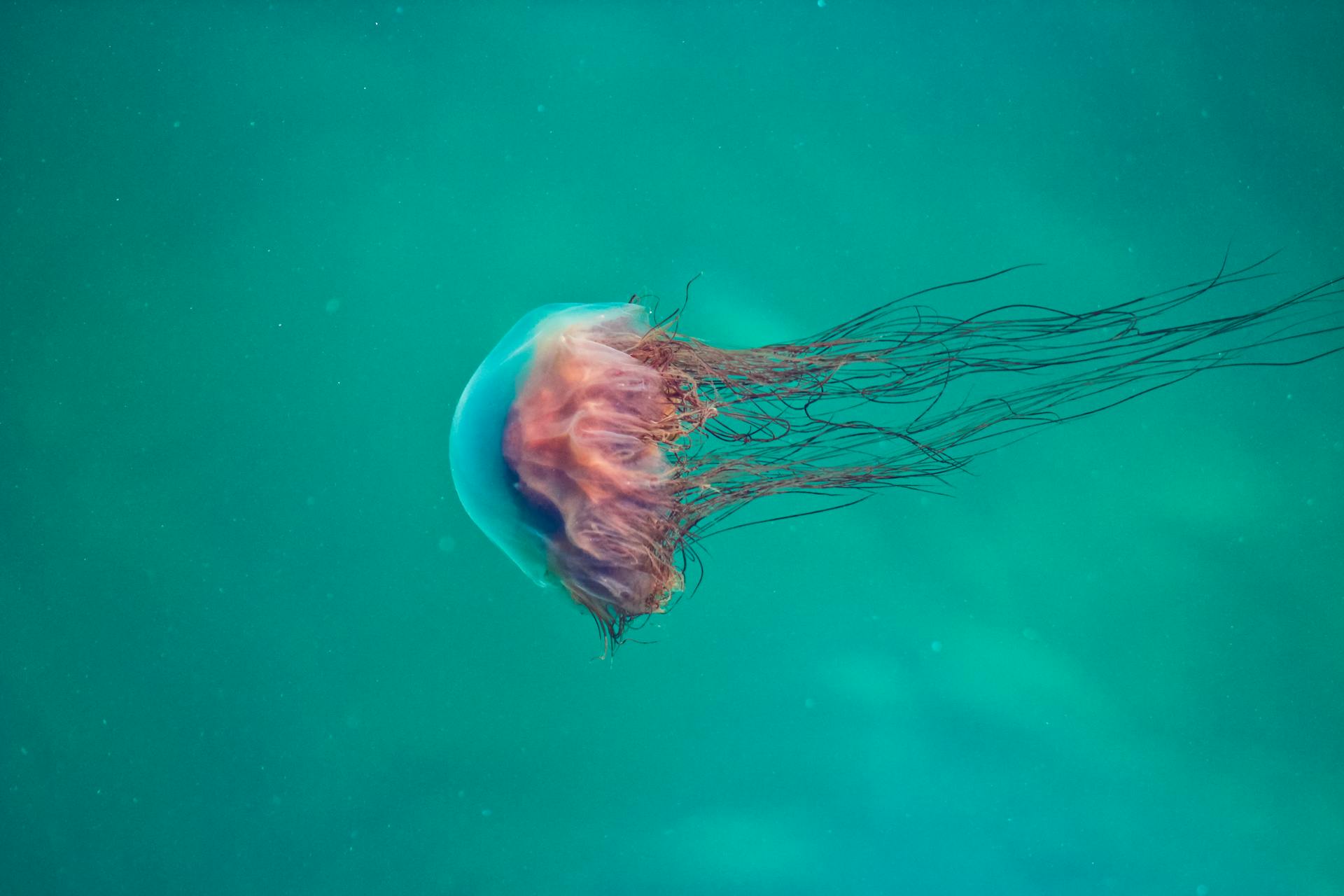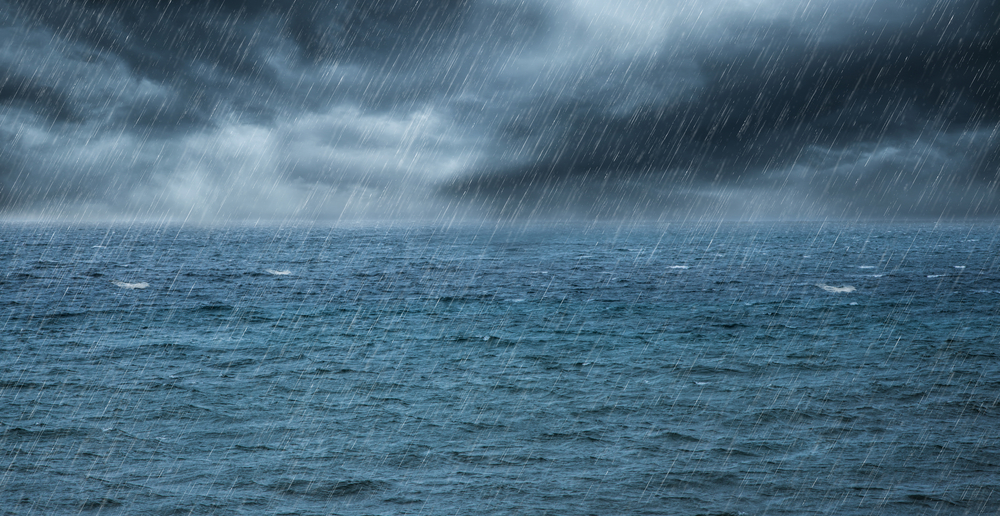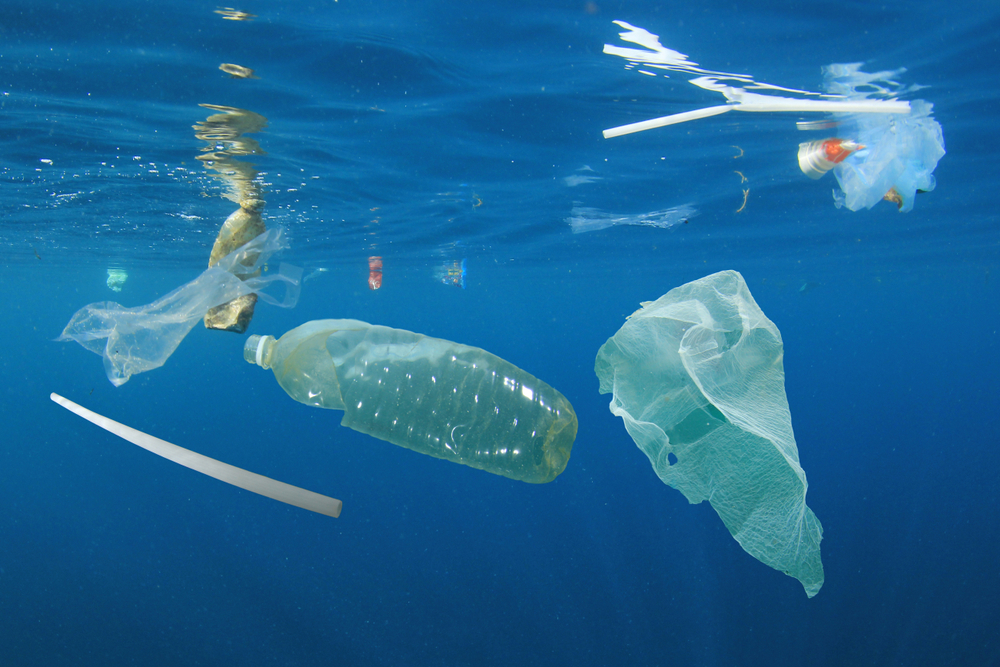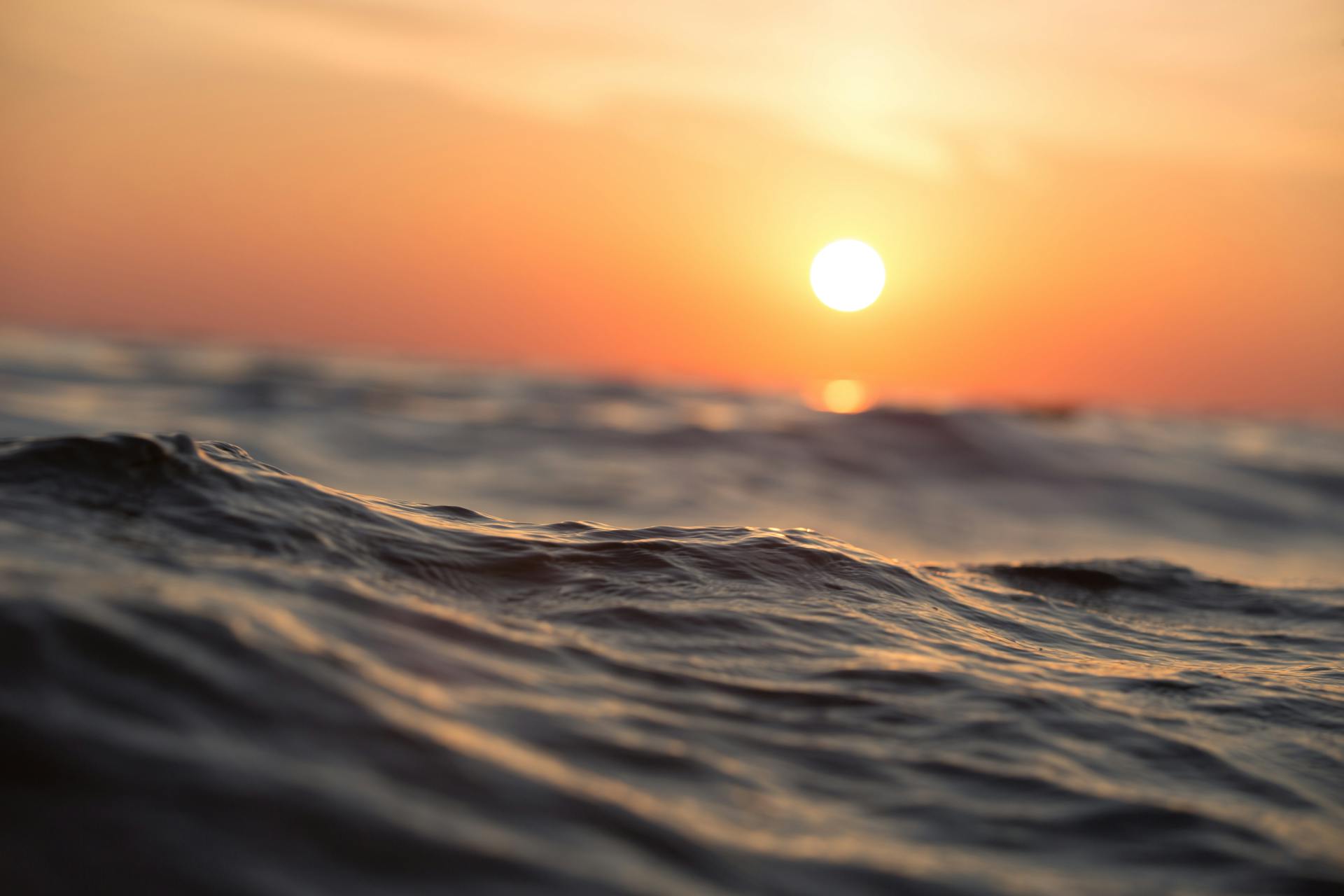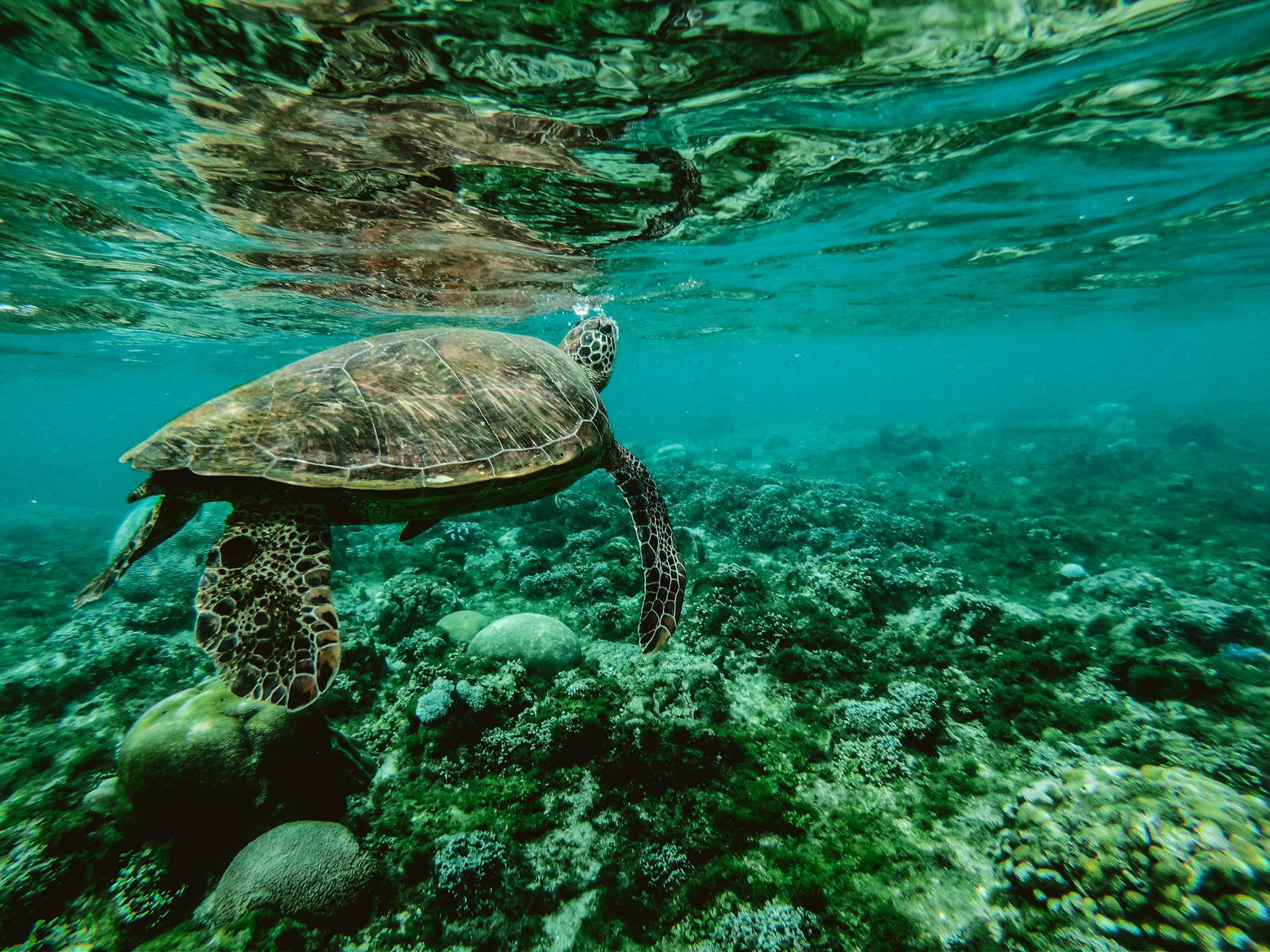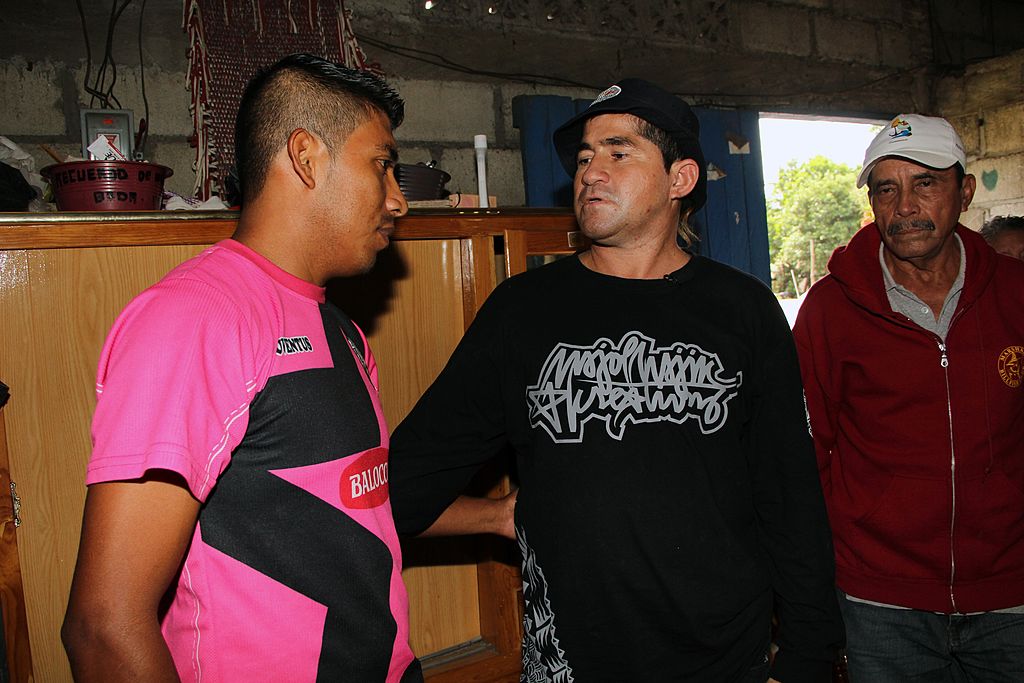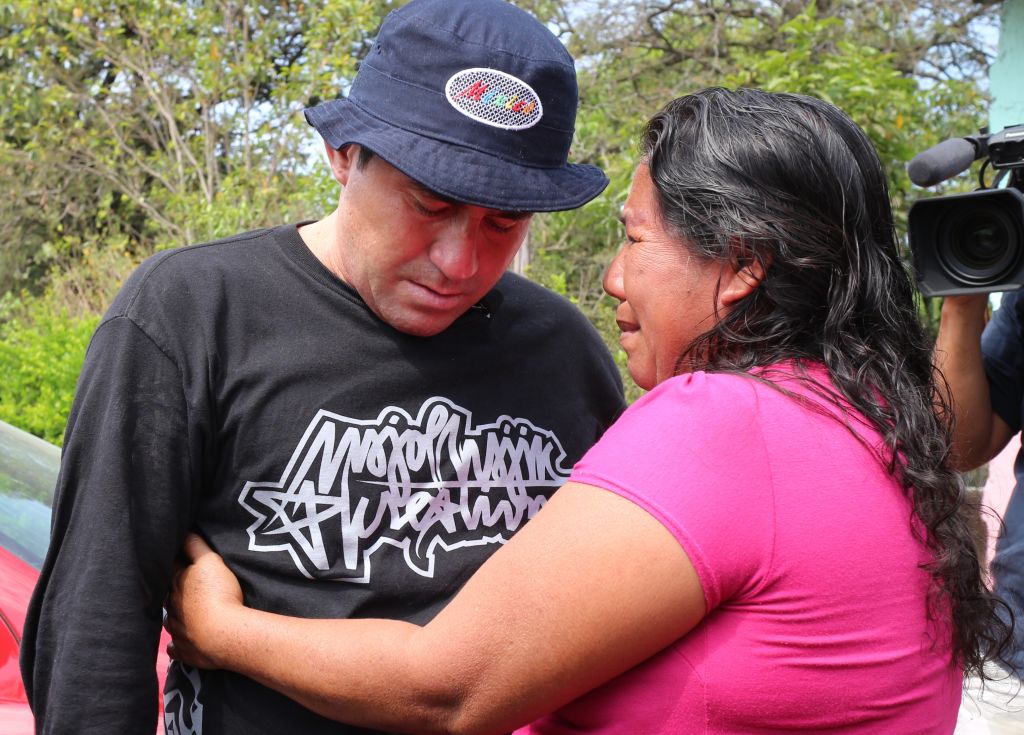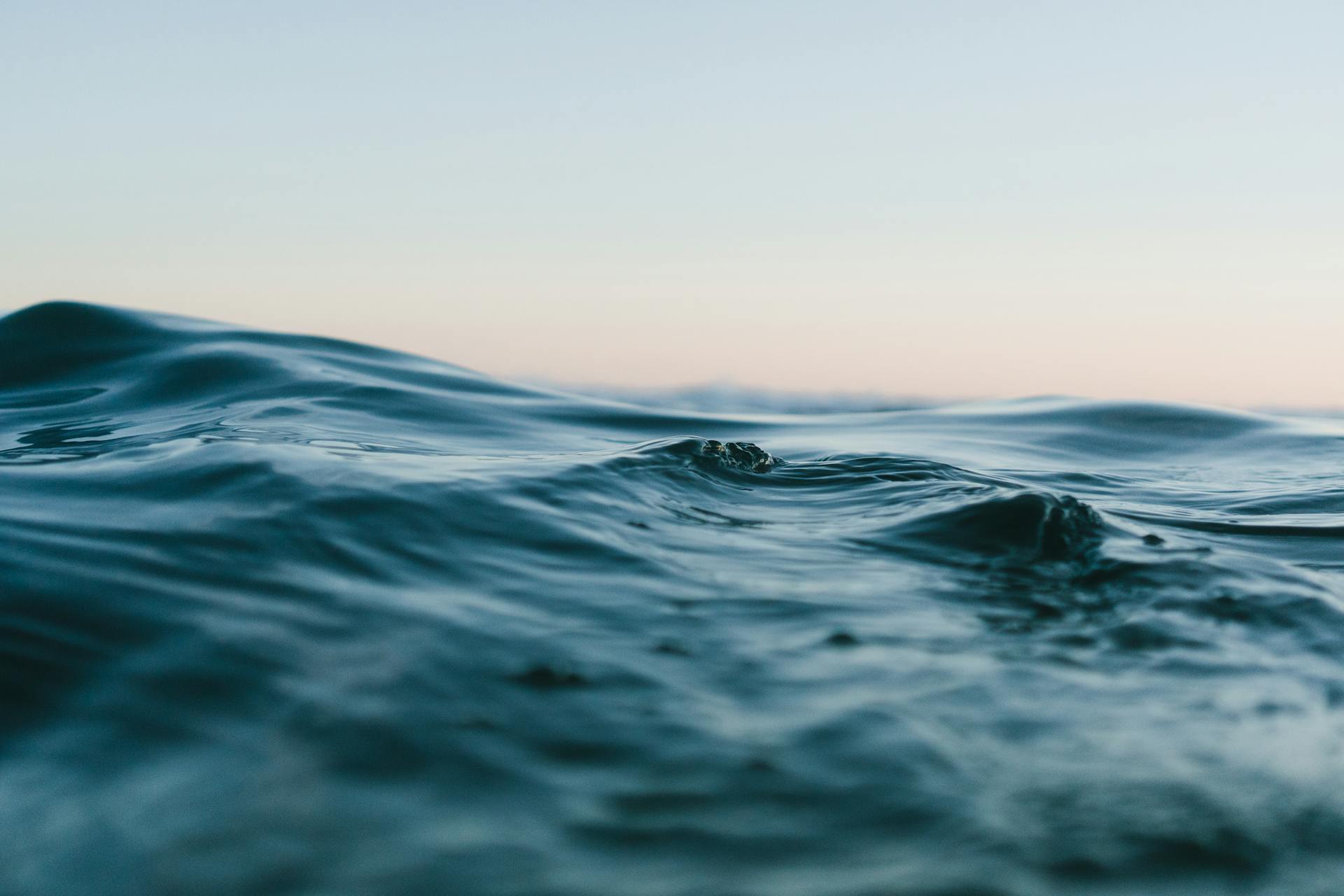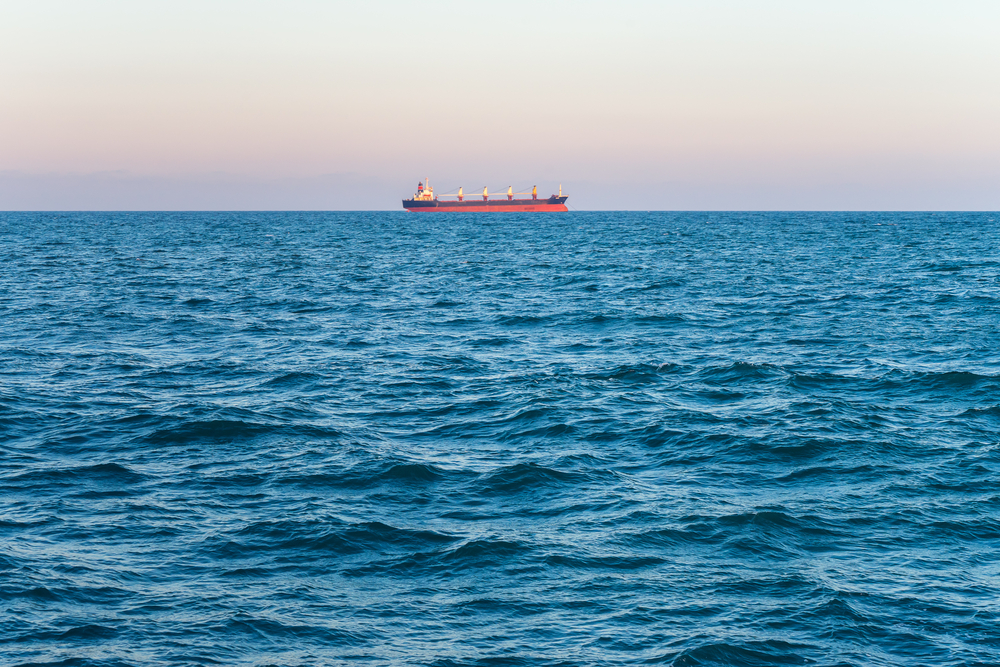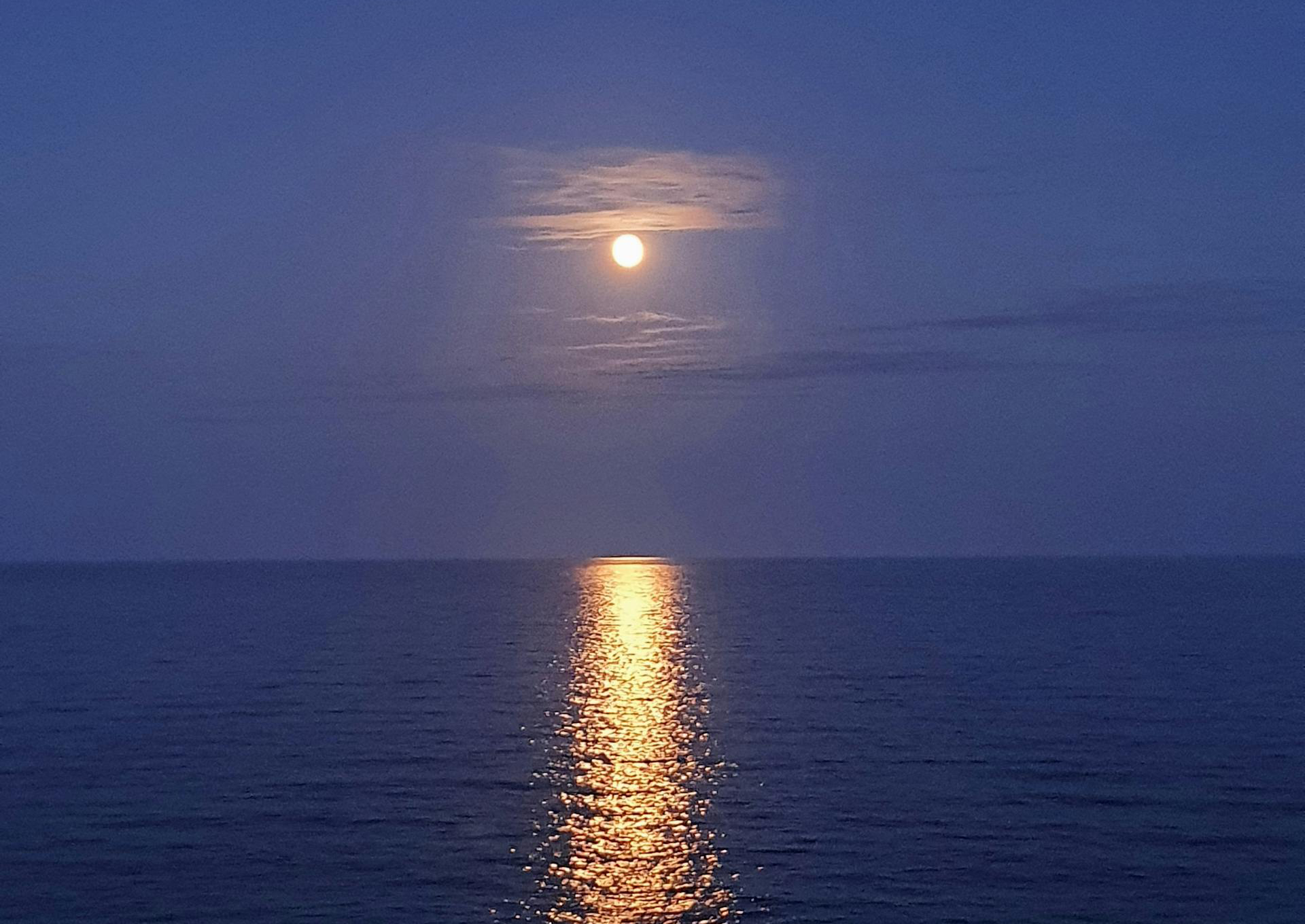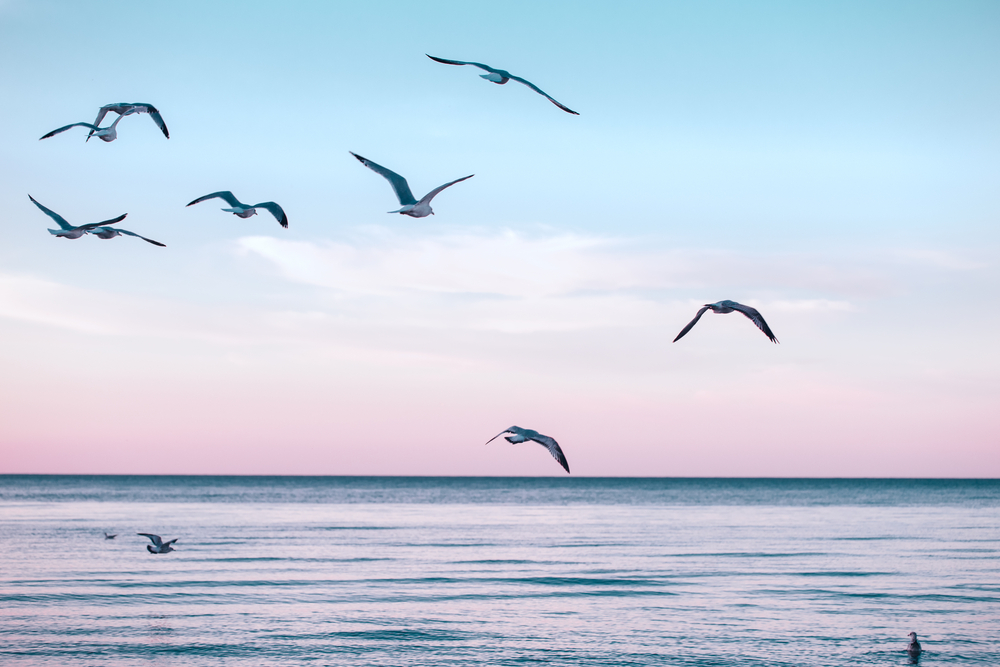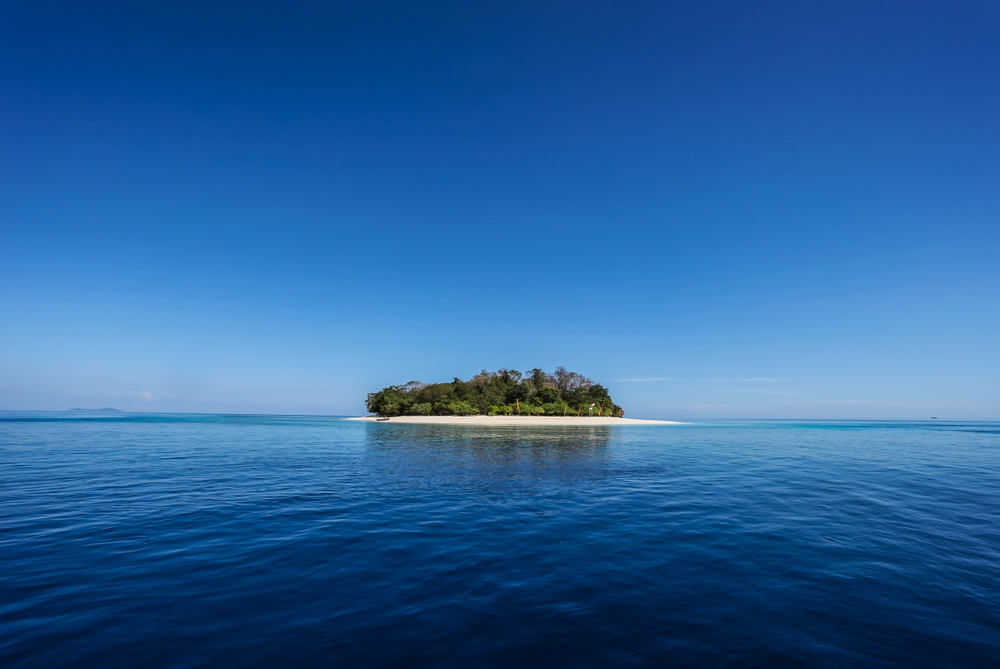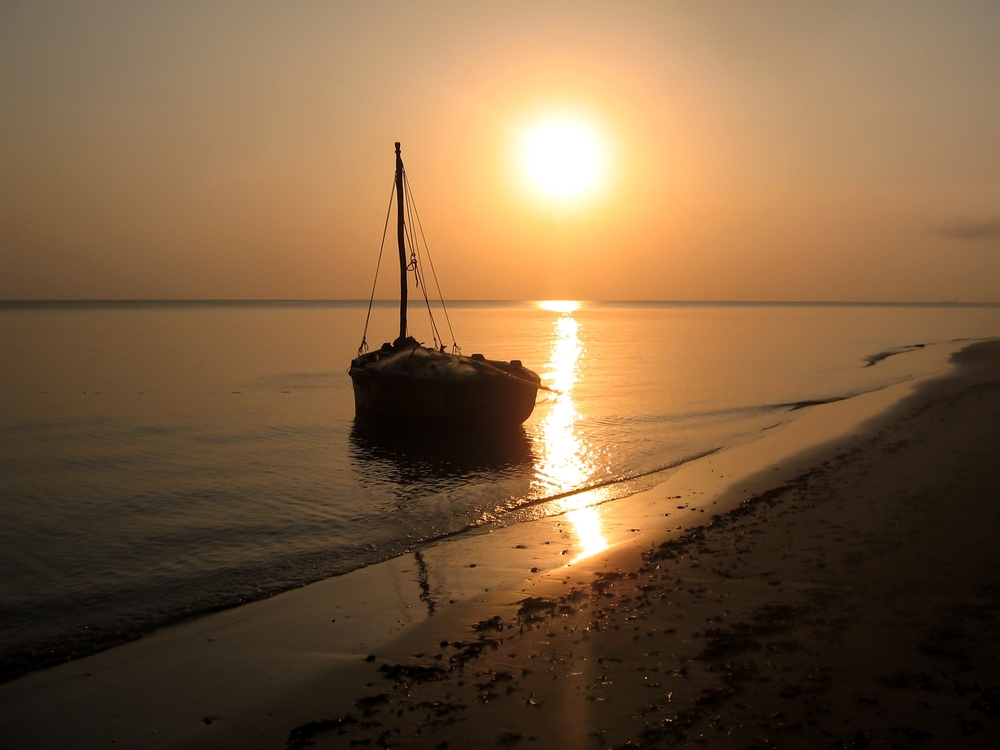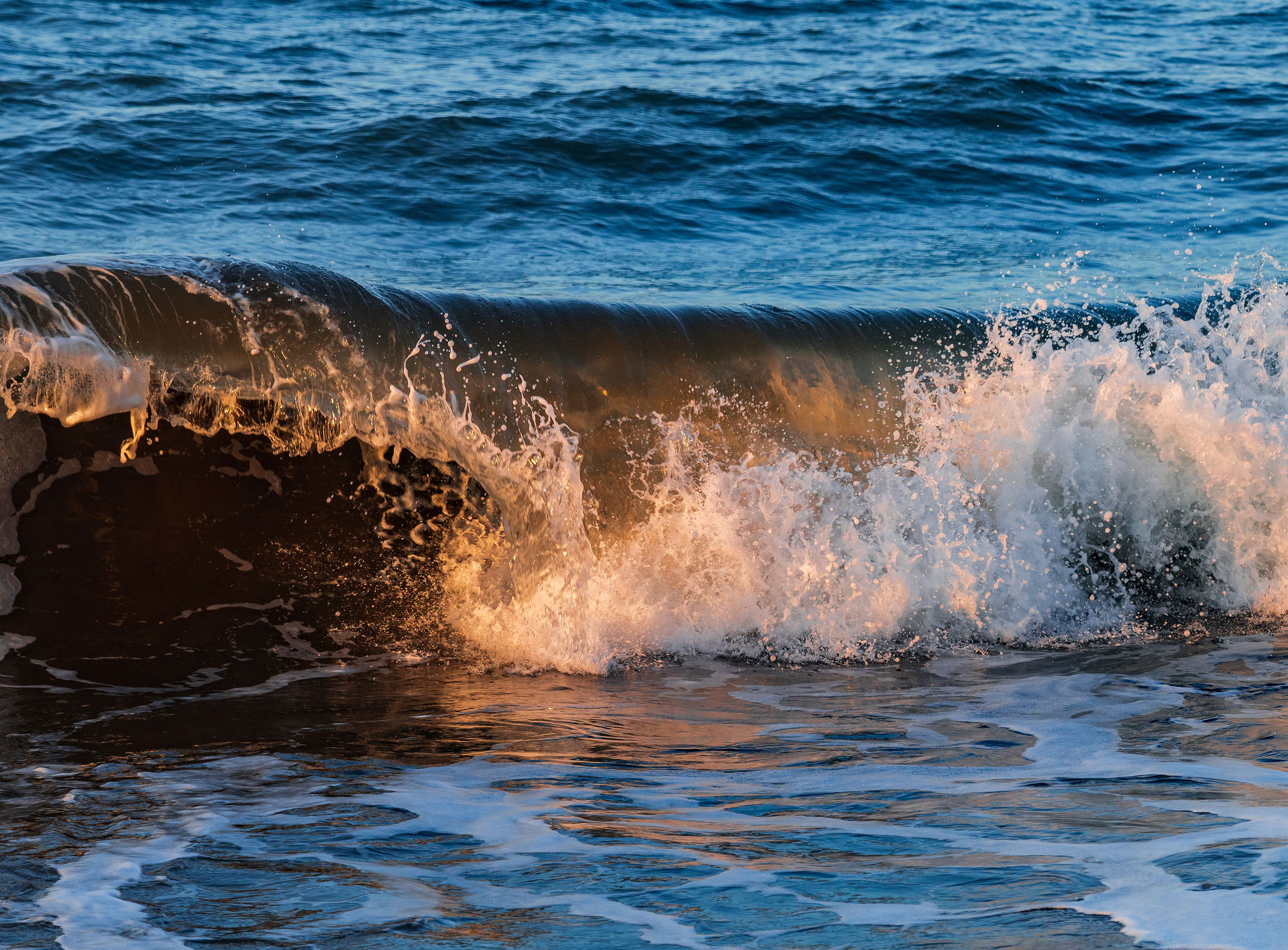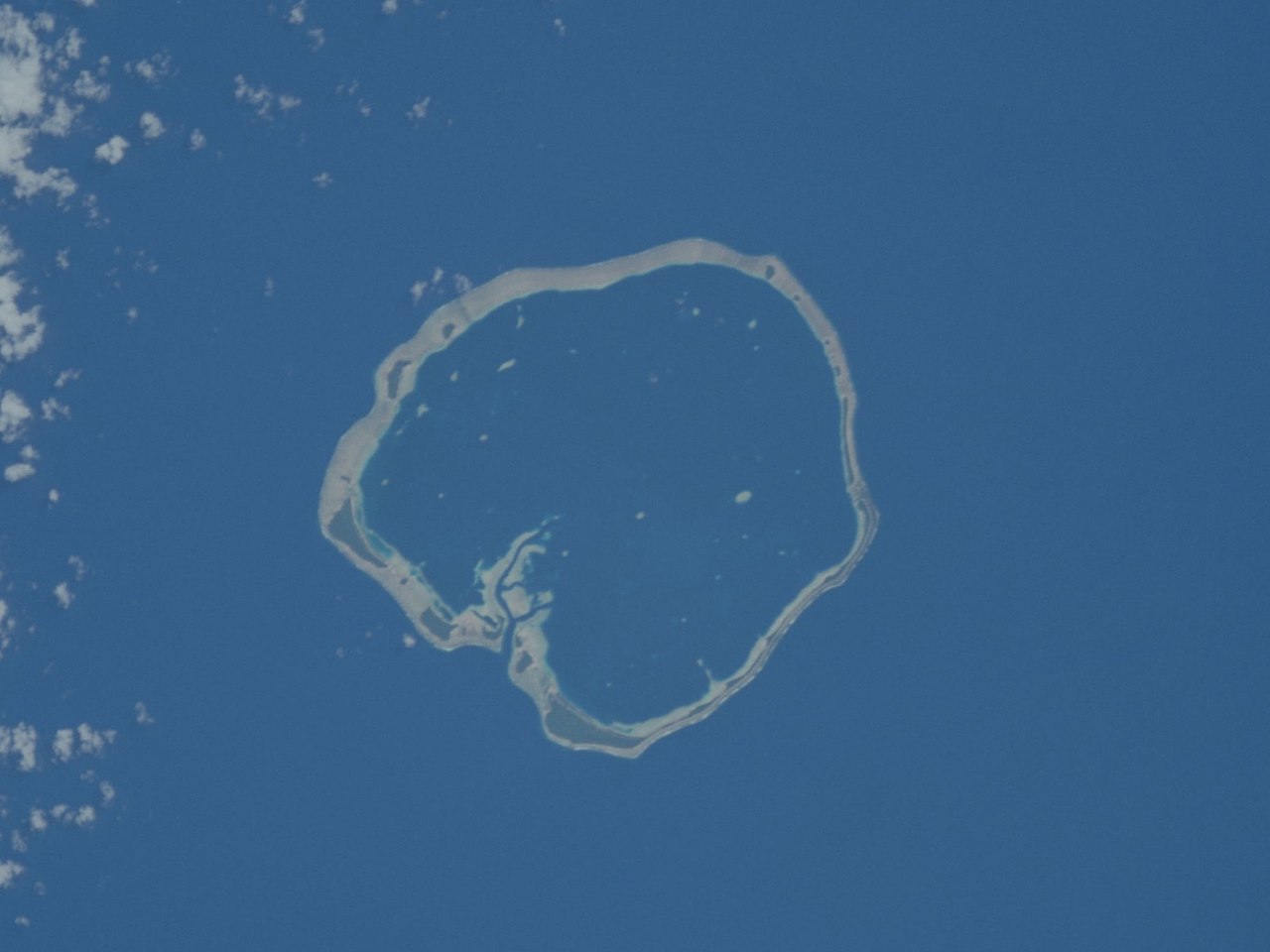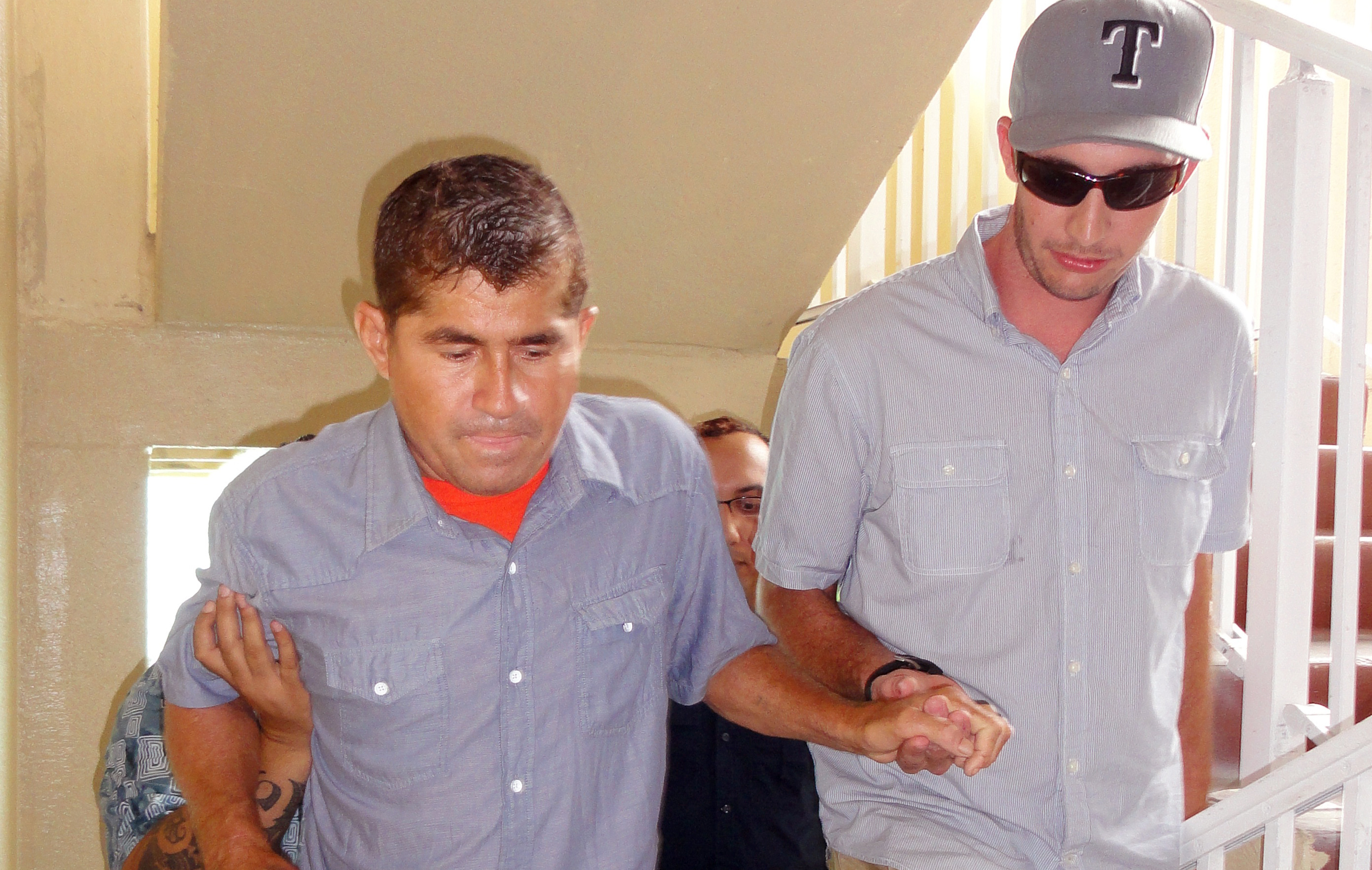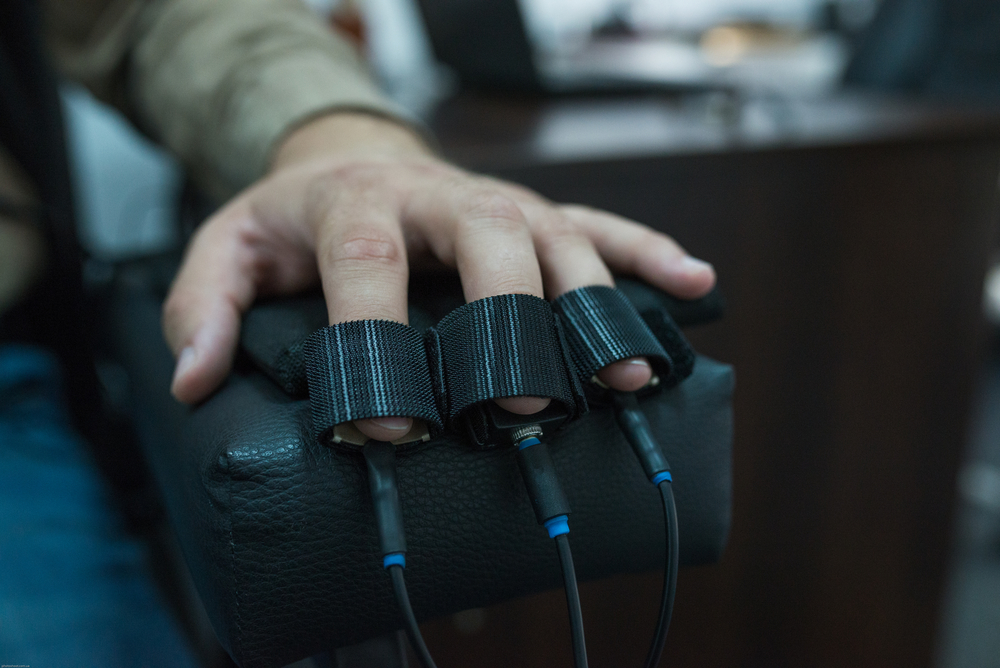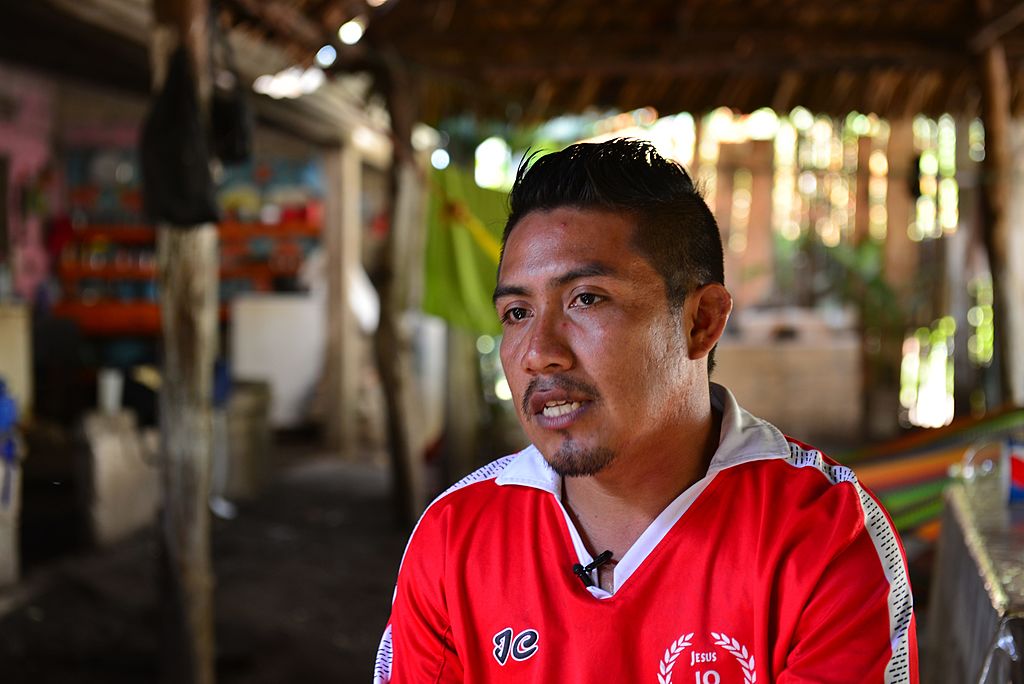A Bad Way To Enter The Record Books
José Salvador Alvarenga was getting ready to embark on a 30-hour deep-sea fishing voyage when his friend Ray Perez, who usually sailed with him, had to back out. Alvarenga couldn’t go alone, so he enlisted young and inexperienced Ezequiel Córdoba.
The two of them set sail, unaware one of them wouldn’t see land again for 14 months. The other wouldn’t see land again at all.
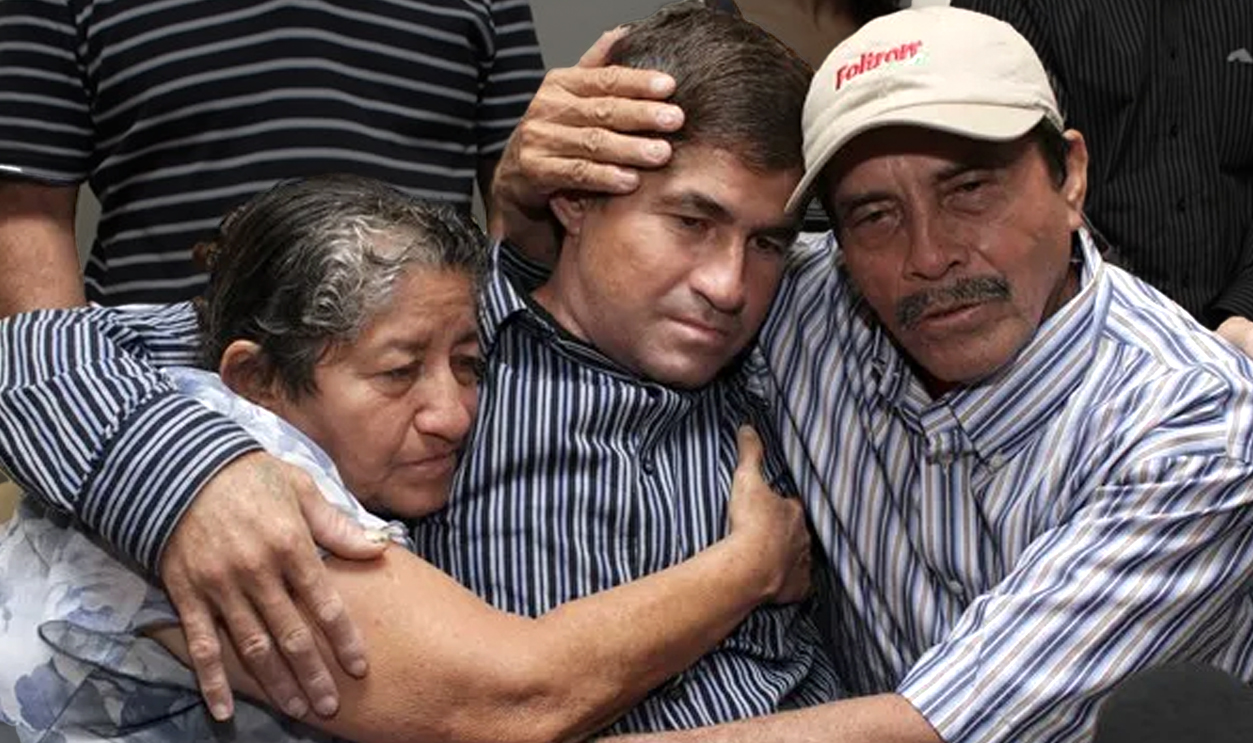
A Man Of The Sea
Originally from El Salvador, José Salvador Alvarenga left his daughter with his parents in 2002 and moved to Mexico, where he became a deep sea fisherman.
Before his harrowing ordeal, he hadn’t been in contact with his daughter for eight years.
He Lived In Mexico
By November of 2012, Alvarenga had nearly a decade of experience as a sailor and deep-sea fisherman. He was living in the fishing village of Costa Azul in Chiapas, the southernmost state in Mexico.
He set out from Costa Azul on November 17, with an unfortunate Ezequiel Córdoba along for the ride.
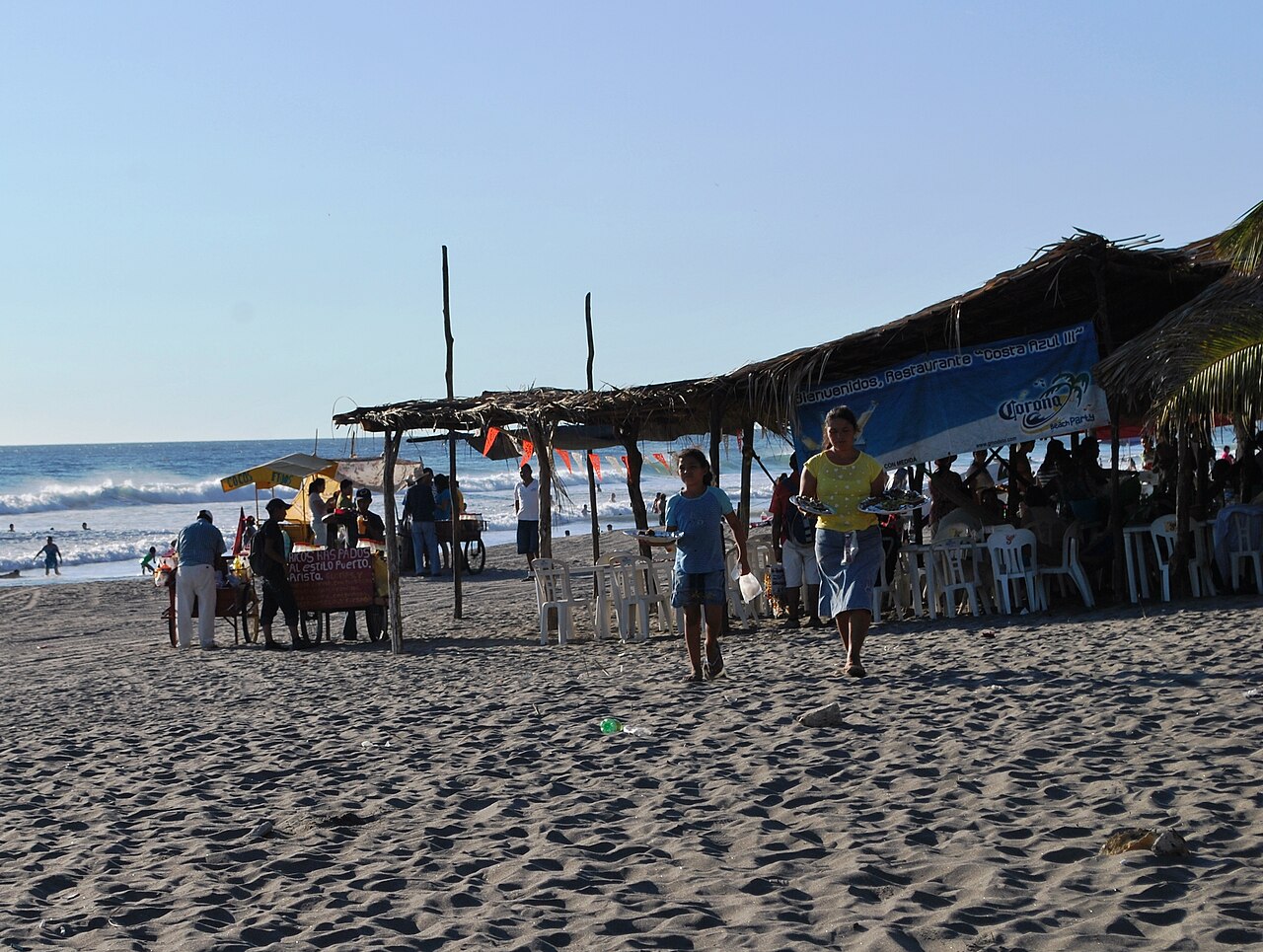 AlejandroLinaresGarcia, CC BY-SA 3.0, Wikimedia Commons
AlejandroLinaresGarcia, CC BY-SA 3.0, Wikimedia Commons
He Was Desperate To Go
Alvarenga was intent on his latest fishing voyage, so when his friend Ray backed out, he was ready to sail with anyone. That’s how he ended up embarking with a young man he’d never even met before.
They Hadn’t Met
Most people around town knew the 23-year-old Ezequiel Córdoba as the star of local soccer team, but not Alvarenga: The two hadn’t even met before they set sail, and Alvarenga didn’t even know his first mate’s last name.
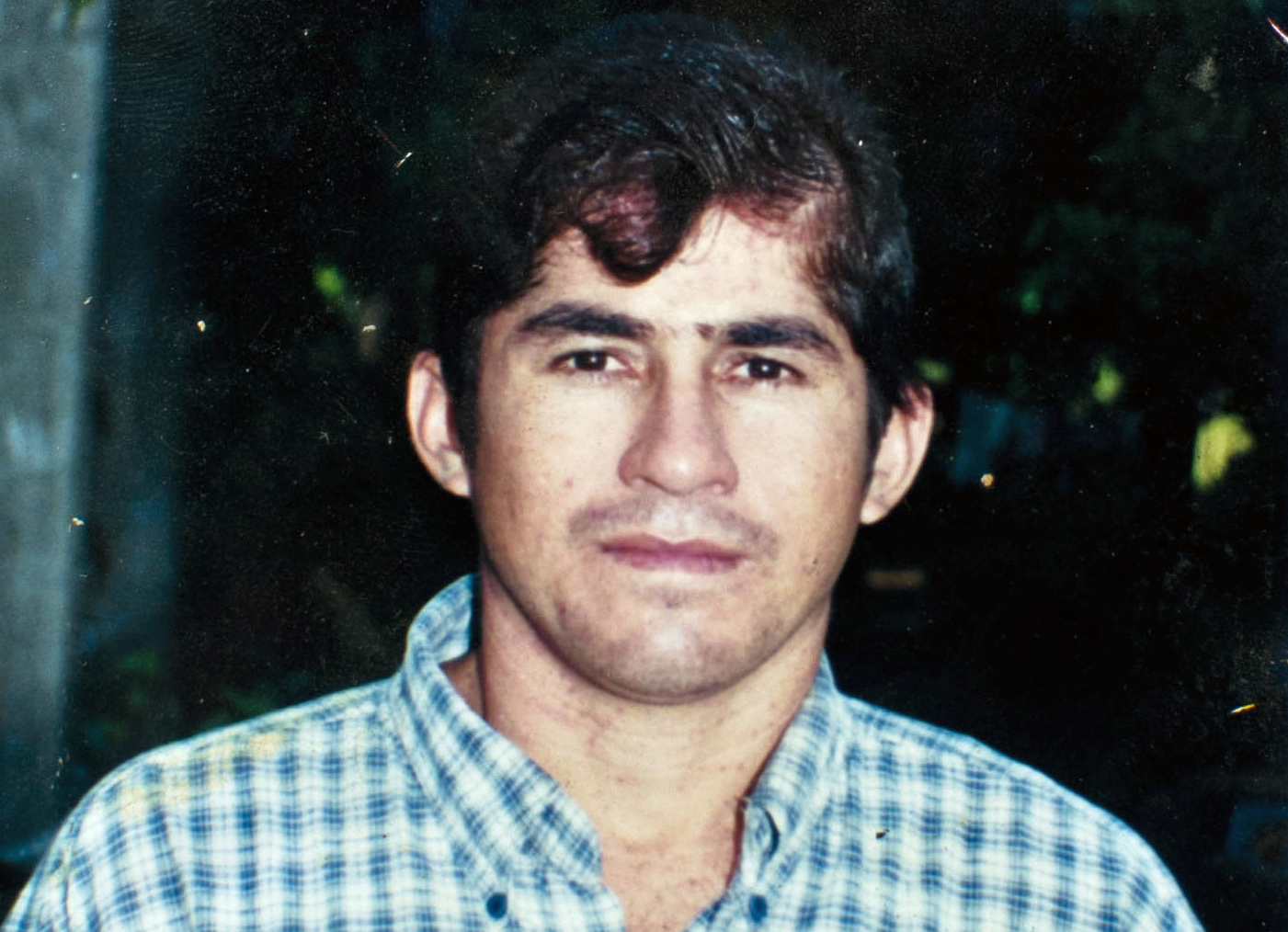 JOSE CABEZAS/AFP, Getty Images
JOSE CABEZAS/AFP, Getty Images
He Expected $50
Ezequiel Córdoba was young and strong, and he signed up for a short voyage, planning to work hard and expecting to make $50.
He wasn’t prepared for what he was going to have to face.
His Boat Had No Roof
Alvarenga and Cordoba set sail in a small, 23-foot fibreglass skiff equipped with one dinky outboard motor and an icebox for storing fish.
That was it. The boat didn’t even have a roof.
They Were Almost Invisible
Alvarenga’s simple boat worked against him once they were blown off course: Even if they passed close to any ship, with no sail or raised structure of any kind, they were nearly invisible at sea.
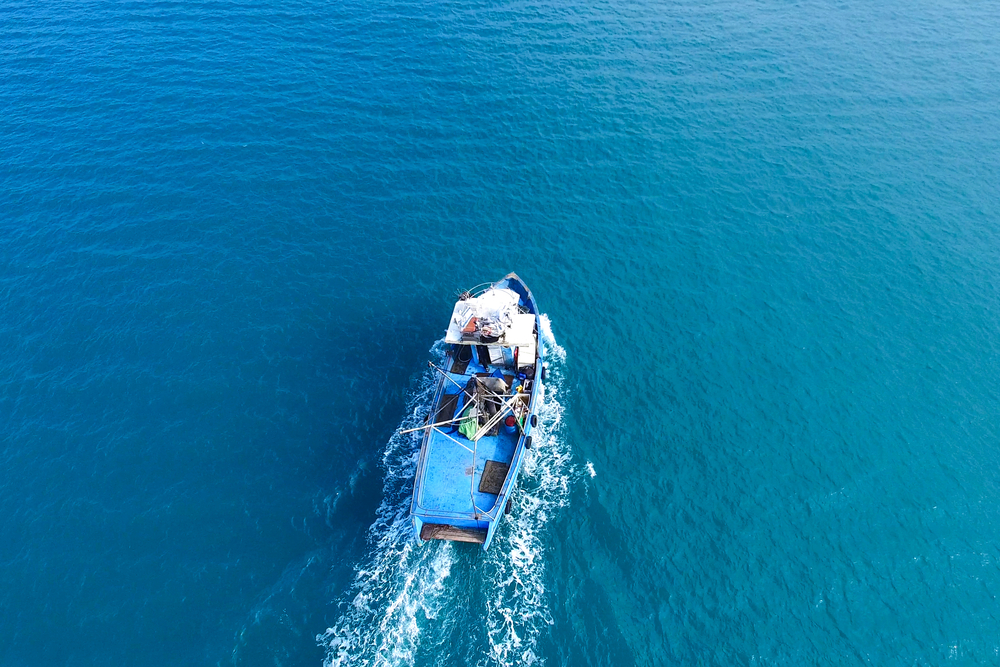 StockStudio Aerials, Shutterstock
StockStudio Aerials, Shutterstock
He Packed Light
Alvarenga had countless hours at sea, and he had loaded up his boat with what he would need and nothing more:
70 gallons of gasoline
16 gallons of water
50lb of bait sardines
700 hooks
Several miles of fishing line
A harpoon
Three knives
Three bailing buckets
A mobile phone (sealed in a plastic bag)
A GPS tracking device (notably not waterproof)
A two-way radio (not fully charged)
Wrenches for motor maintenance
200lbs of ice for storing the catch
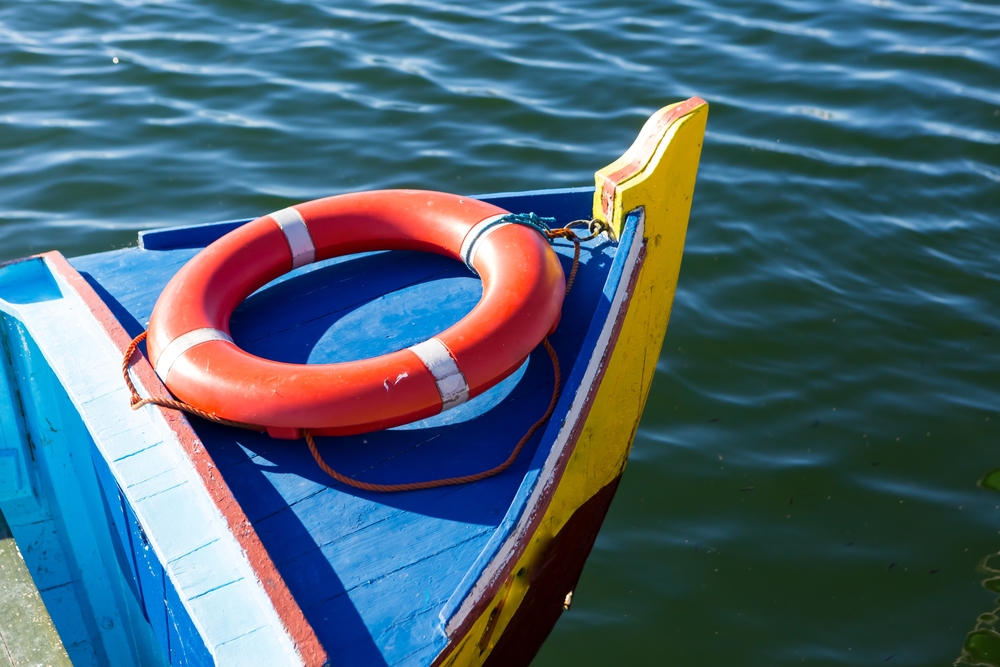 Greens and Blues, Shutterstock
Greens and Blues, Shutterstock
He Was Missing Something
Alvarenga had prepared for many voyages, so he should have known he was missing something: An anchor.
This oversight would doom them.
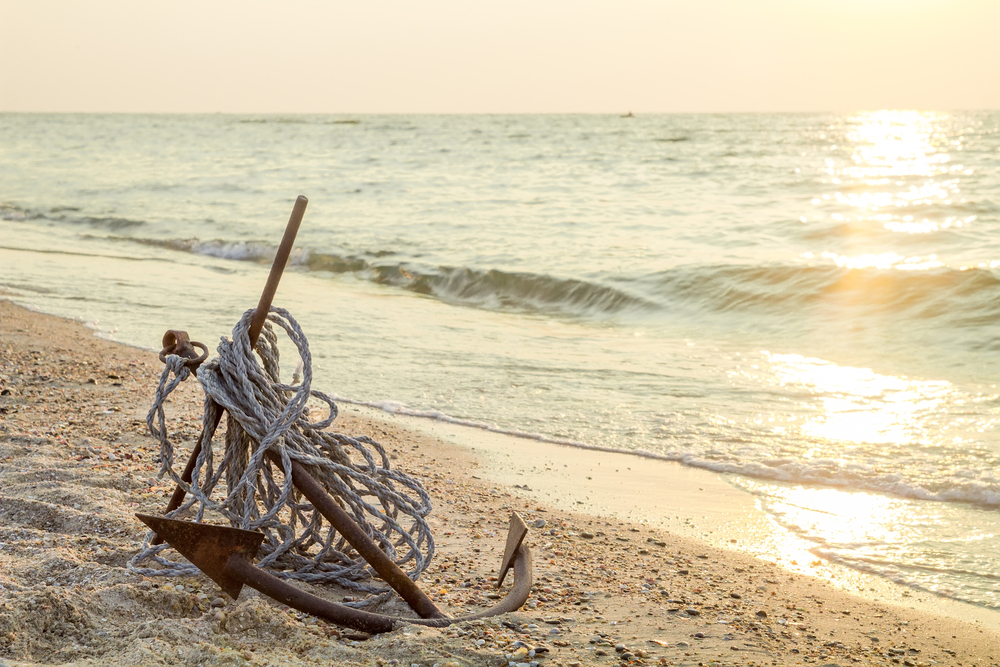 Braslavets Denys, Shutterstock
Braslavets Denys, Shutterstock
They Had A Week’s Catch
The trip started off alright, and after two days they filled their icebox with nearly 1,000 pounds of fish like tuna, mahimahi, and sharks. Then the sky began to darken.
It Wasn’t Worth It
The fish that Alvarenga and Cordoba had caught before the storm hit would only have gotten them enough money to survive for about a week.
But money was about to be the last thing they were going to need.
A Terrible Storm Hit
Alvarenga was an experienced fisherman and had seen his fair share of storms, so when bad weather set in just two days into their voyage, he wasn’t too worried yet.
But this storm was going to be worse than any he’d seen before—and early into the gale, disaster struck: The motor gave out.
His Companion Was Struggling
Fighting the storm in their little boat with no motor was way more than Cordoba had signed up for. He screamed as the waves battered their little fiberglass boat, convinced it would shatter and they’d be eaten by sharks.
He Stayed Calm
With Alvarenga's determination fueling them, the two men fought the storm until the clouds finally started to clear.
They both must have breathed a sigh of relief—but the sea wasn’t done toying with them yet.
He Spotted Land
As the weather began to calm, Alvarenga spotted the top of a mountain on the horizon. They were tantalizingly close to shore—but the storm had taken its toll on their boat.
Their Motor Was Shot
Alvarenga’s radio still worked, but unfortunately, both his motor and his GPS were cooked after the storm.
They were so close—but this voyage was still doomed.
He Contacted The Shore
Before being lost at sea, Alvarenga managed to radio his boss back on shore and explain the dangerous situation they were in. But it wouldn't help.
There Wasn’t Much They Could Do
Alvarenga’s boss asked for their coordinates, but the GPS was broken. He told them to drop an anchor—Alvarenga had forgotten one.
They sent out a rescue team—but they didn’t stand a chance.
A Call For Help
The last thing Alvarenga said before he lost contact with shore was, “Come now, I am really getting ****** out here”.
They tried, but the rescue team would never find Alvarenga and Cordoba’s vessel.
It Lasted Nearly A Week
The storm had abated, but it hadn’t stopped—it would continue for nearly a week, and Alvarenga knew it.
The waves continued to buffet their boat horribly, filling it with water and constantly threatening to throw the men overboard.
The Waves Were Enormous
The pair had to work tirelessly to keep their boat upright, bracing against the sides to counteract the rolling of each towering wave that rolled past.
But no matter how hard they tried, it still felt like the boat could capsize at any moment.
They Had To Abandon Their Catch
Alvarenga and Cordoba had caught nearly 1,000 lbs of fish, but in the storm the full icebox made their slight boat too top heavy.
They ended up throwing most of their catch overboard to try and keep themselves upright—but that brought a new danger.
They Attracted Sharks
The boat was more stable with the catch gone, but the chum they threw in the water almost certainly attracted sharks, making being thrown overboard more dangerous than ever.
It Wasn’t Enough
The boat was still too top heavy even with the catch gone, so the ice and the extra gas (useless with a broken motor) went overboard next.
He Made A Sea Anchor
Alvarenga strung together 50 buoys from around his boat to make a sea anchor that he threw overboard to provide some drag and stability in the rough seas—but it wouldn’t be enough.
They Had To Bail Constantly
Even if they stayed upright, the massive waves constantly threatened to swamp their boat and take them under.
Both of the men spent hour after hour bailing out water until they were ready to collapse from exhaustion. Soon, Alvarenga snapped.
He Got Furious
At one point, Alvarenga snapped and smashed both the broken motor and radio as hard as he could with the club he usually used on fish. Then he furiously dumped them both in the ocean.
I’m sure it was cathartic—but soon exhaustion was all that was left.
They Were Freezing
After days spent bailing water and enduring rain in their open boat, the cold started to set in.
They tried huddling together for warmth under the small, plastic icebox—but whenever they stayed in it for long, water threatened to swamp them.
They Were Being Blown Out To See
Offshore winds continued to blow Alvarenga and Cordoba further and further offshore, and the two of them completely lost track of where they were, with only the stars to give them any hint.
They Needed A New Way To Fish
Ironically for a fishing vessel, Alvarenga and Cordoba found themselves lost at sea without any bait for fishing equipment.
But Alvarenga came up with a new way to catch fish.
They Attracted Sea Creatures
The shelter of their drifting hull attracted many sea creatures that sat tantalizing close underwater. It gave Alvarenga an idea.
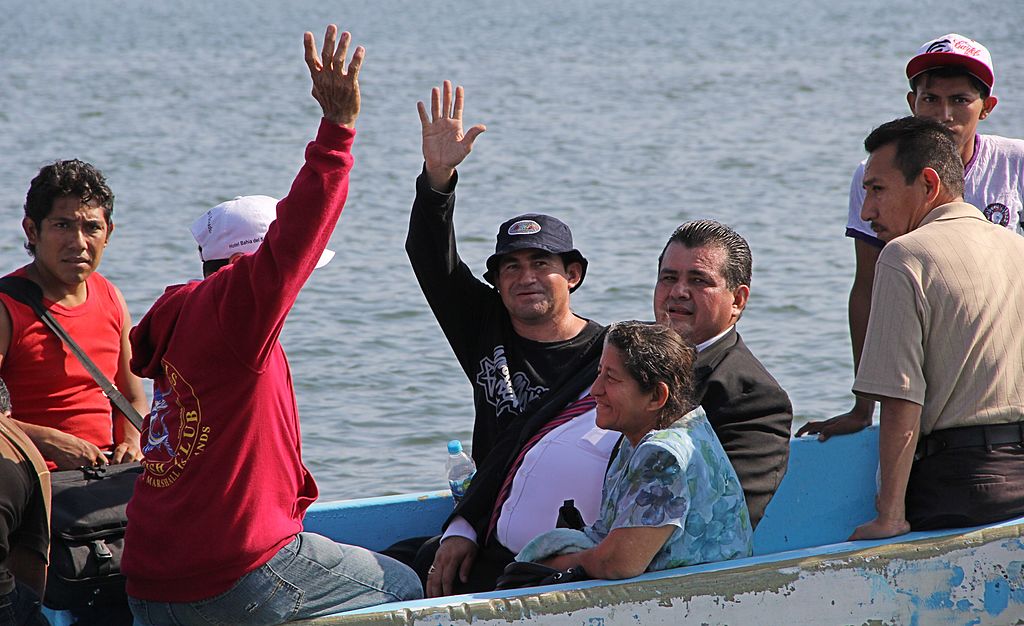 ELIZABETH RUIZ/AFP, Getty Images
ELIZABETH RUIZ/AFP, Getty Images
He Caught Them By Hand
He’d lean over the edge of the boat with both of his arms outstretched underwater, completely motionless. Eventually, a complacent fish would swim between them—and he would snap his hands together like a trap.
Most of the fish got away—but not all of them. He eventually got better, but it never felt like enough.
There Were Sharks In The Water
Alvarenga and Cordoba had to keep an eye out for fins sticking out of the water—because they weren’t the only hungry predators after those fish.
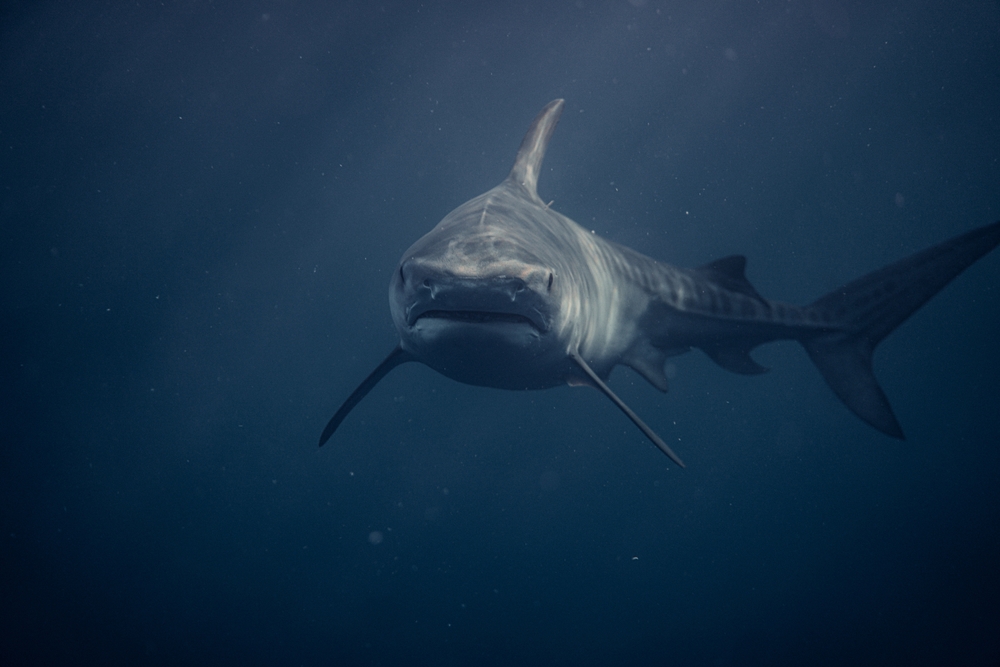 DannyTorobekovArt, Shutterstock
DannyTorobekovArt, Shutterstock
They Ate A Lot Of Dried Fish
When they made a catch, the fishermen would expertly filet the fish and leave strips of meat out in the sun to dry. It was better than being stranded in the desert—but raw fish after fish after fish lost its appeal very quickly.
He Drank His Urine
Since the storm ended, the closest thing either of them had found to fresh water was turtle blood, and they were getting desperate.
Though he couldn’t convince Cordoba to do the same, Alvarenga began drinking his own urine for hydration. What he didn’t realize was: He was actually making it much worse.
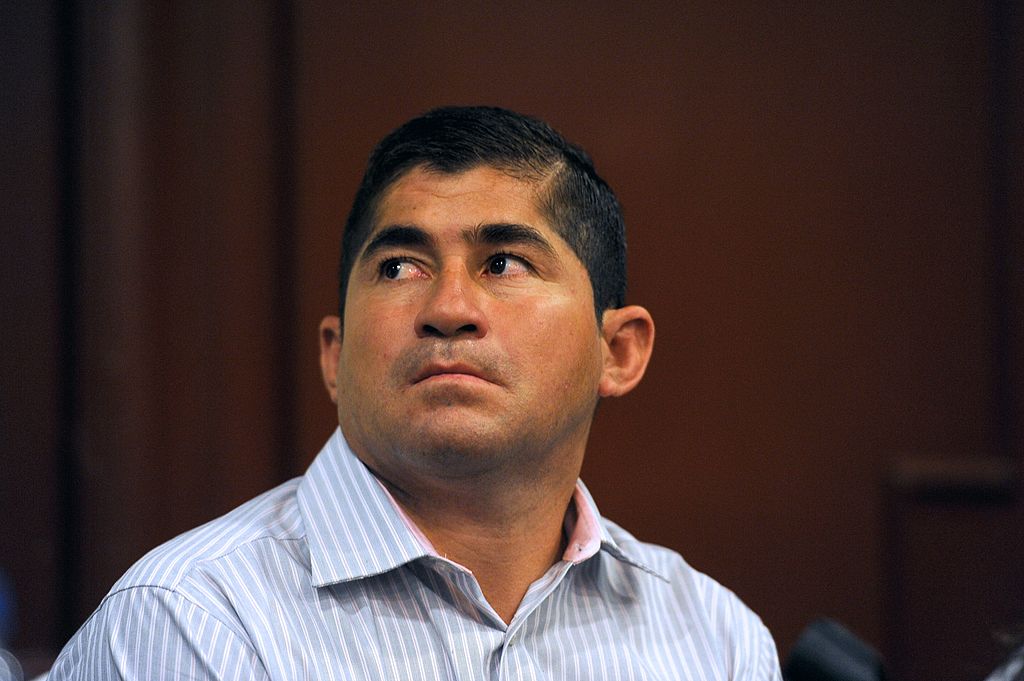 JOSE CABEZAS/AFP, Getty Images
JOSE CABEZAS/AFP, Getty Images
It Got Gross
There would be long stretches where they couldn’t catch a fish—and Alvarenga got desperate. Some of the things he ate out of blind hunger? A raw jellyfish…and his own fingernails.
They Heard A Joyous Sound
It was two full weeks into their trial until, while taking shelter under the icebox, the pair of them heard an amazing sound: “Splat. Splat. Splat.”
Finally: Rain.
They Rejoiced
The man laughed and rejoiced as they soaked their clothes and bodies, opened their mouths to the sky, and prepared a bucket to collect as much rainwater as possible.
It was like finding an oasis—but it wouldn’t last forever.
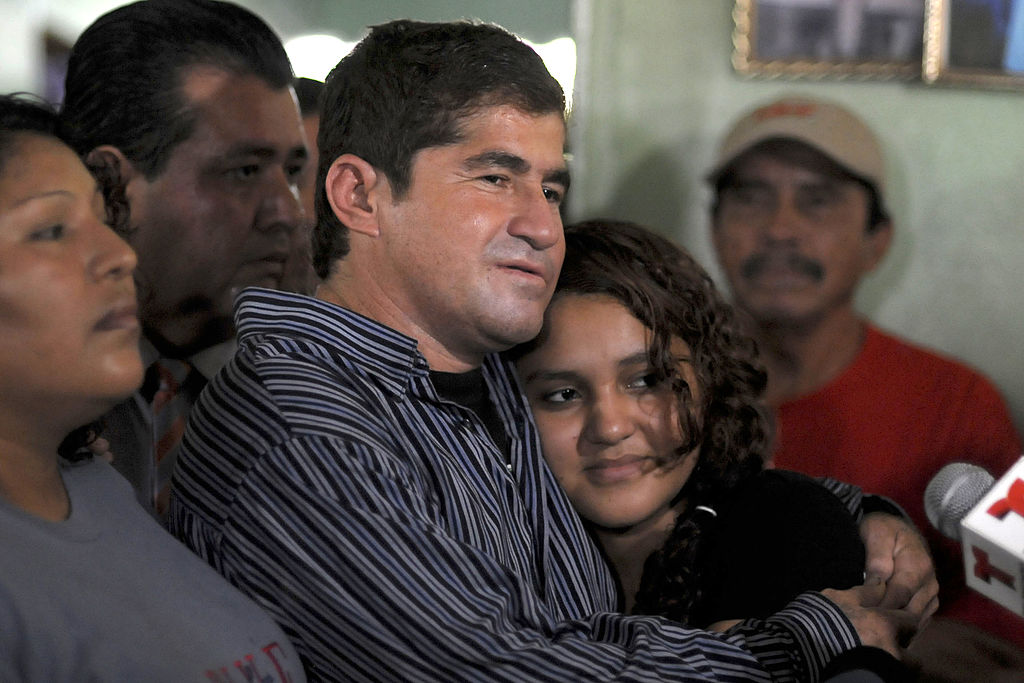 JOSE CABEZAS/AFP, Getty Images
JOSE CABEZAS/AFP, Getty Images
They Collected Trash
Day after day passed, and the only contact the men made with civilization was the trash that constantly floated past their boat.
The men were sure to collect all the bottles they found and anything else they thought might be useful. But then one of them spotted a treasure trove among the waves.
One Man’s Trash Is Another Man’s Treasure
It was a plastic garbage bag, and it was full. The men ripped it open and found chewed gum, used kitchen oil, sodden vegetables, and a half rancid quart of milk.
Alvarenga and Cordoba devoured it all like it was the finest feast they’d ever had.
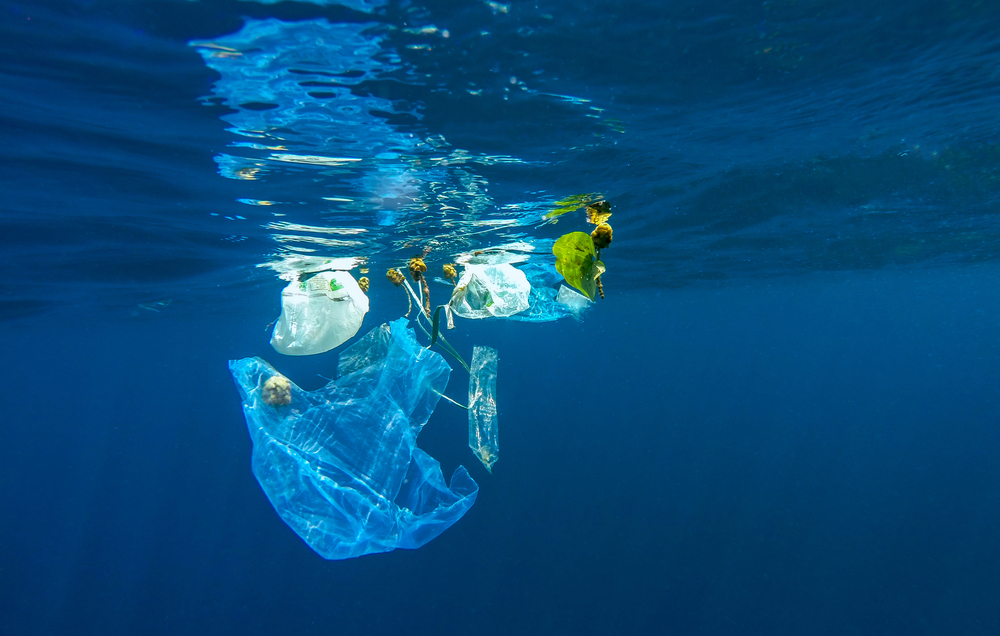 MOHAMED ABDULRAHEEM, Shutterstock
MOHAMED ABDULRAHEEM, Shutterstock
It Wasn’t All Bad
For a time, the two men actually managed to collect a few days worth of food and water all at once (catching a nice juicy turtle makes a big difference).
Once he was rescued, Alvarenga remembered that he and Cordoba would sit and talk about their families in these calm moments, or just sit and take in the beautiful, enormous seascape all around them.
He Adjusted To His New Life
After two long months adrift, Alvarenga began to grow accustomed to life on the ocean. He got used to eating raw seagulls, fish, turtles, subsisting off of the ocean around them.
But the man he shared the boat with was not adjusting quite so well.
Cordoba Started To Crack
Two months adrift at sea, alternating between starving and gorging himself on raw meat, was too much for Cordoba. As Alvarenga adjusted, Cordoba’s mental state began to deteriorate. He grew more depressed and hopeless with each passing day.
Finally, it completely broke him.
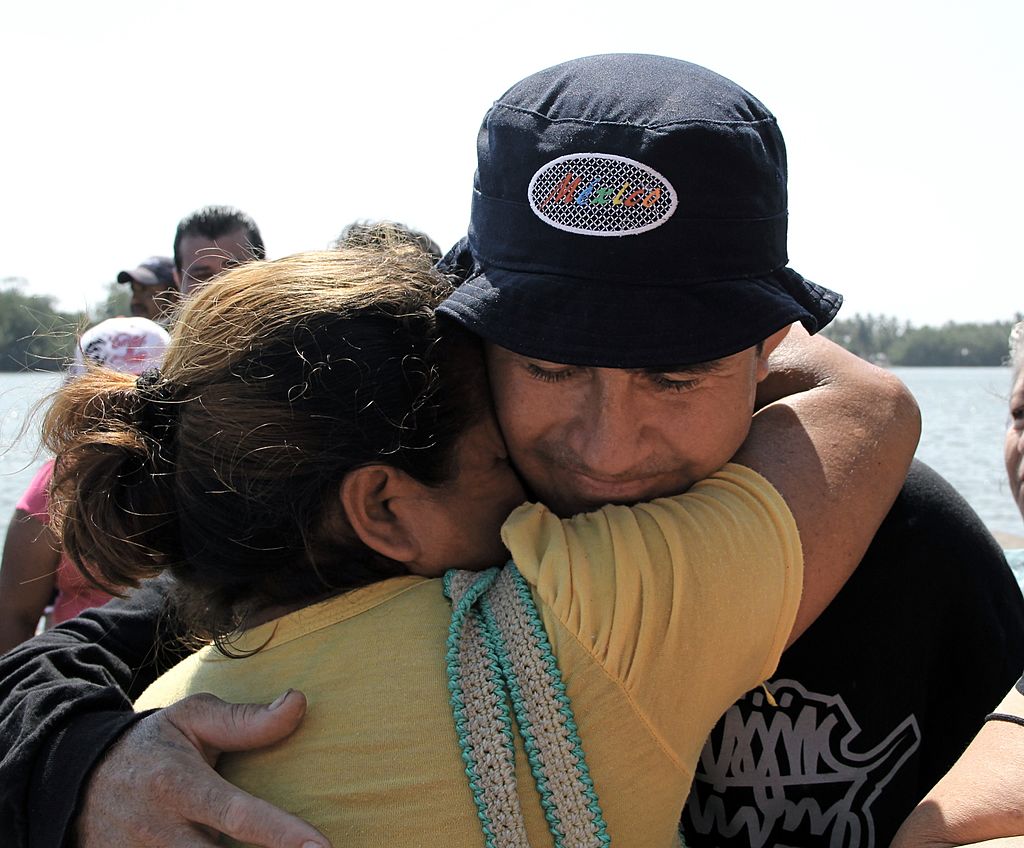 ELIZABETH RUIZ/AFP, Getty Images
ELIZABETH RUIZ/AFP, Getty Images
He Refused To Eat
One day, Cordoba started refusing to eat. Alvarenga proffered pieces of food, but Cordoba kept his jaw clenched shut. Nothing his companion did worked. It seemed Cordoba had made up his mind.
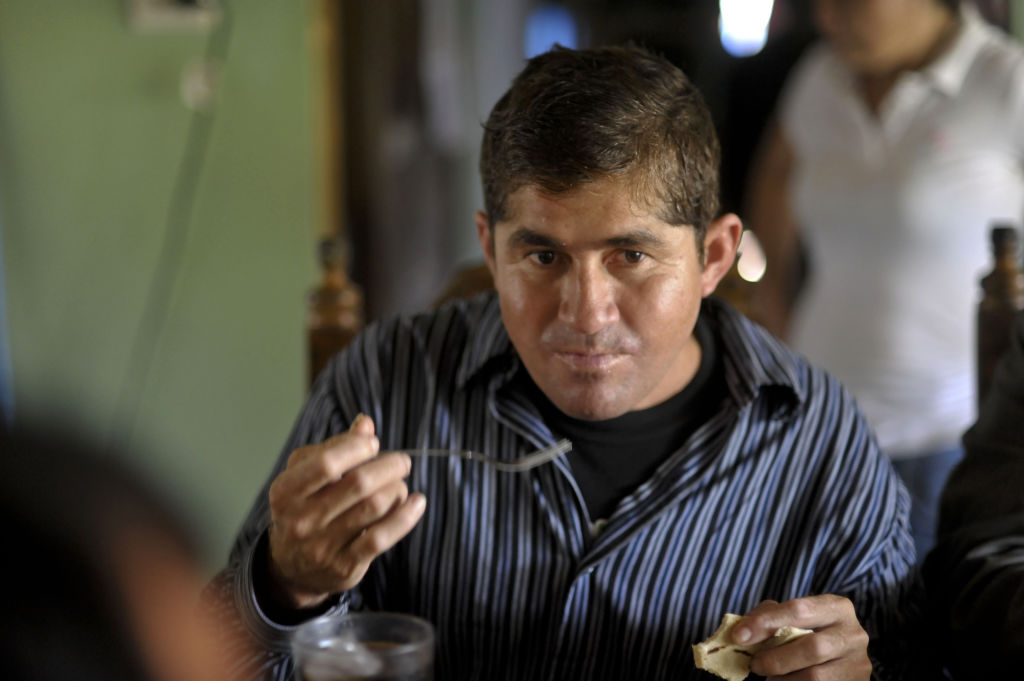 JOSE CABEZAS/AFP, Getty Images
JOSE CABEZAS/AFP, Getty Images
They Made A Pact
Both men had lost touch with their families before their voyage, and there on the boat after months adrift, they made a pact. If only one of them made it out alive, Cordoba would go visit Alvarenga’s family in El Salvador, and Alvarenga would see Cordoba’s mother back in Chiapas.
He Gave A Heartbreaking Message
A reporter asked Alvarenga what Cordoba asked of him: “He asked me to tell his mother that he was sad he could not say goodbye and that she shouldn’t make any more tamales for him – they should let him go, that he had gone with God”.
He Knew It Was Coming
One morning, Cordoba woke up and cried out, “I am dying, I am dying, I am almost gone”. Alvarenga tried to distract him from such thoughts—but then Cordoba started convulsing.
Moments later he went still. His eyes were still open.
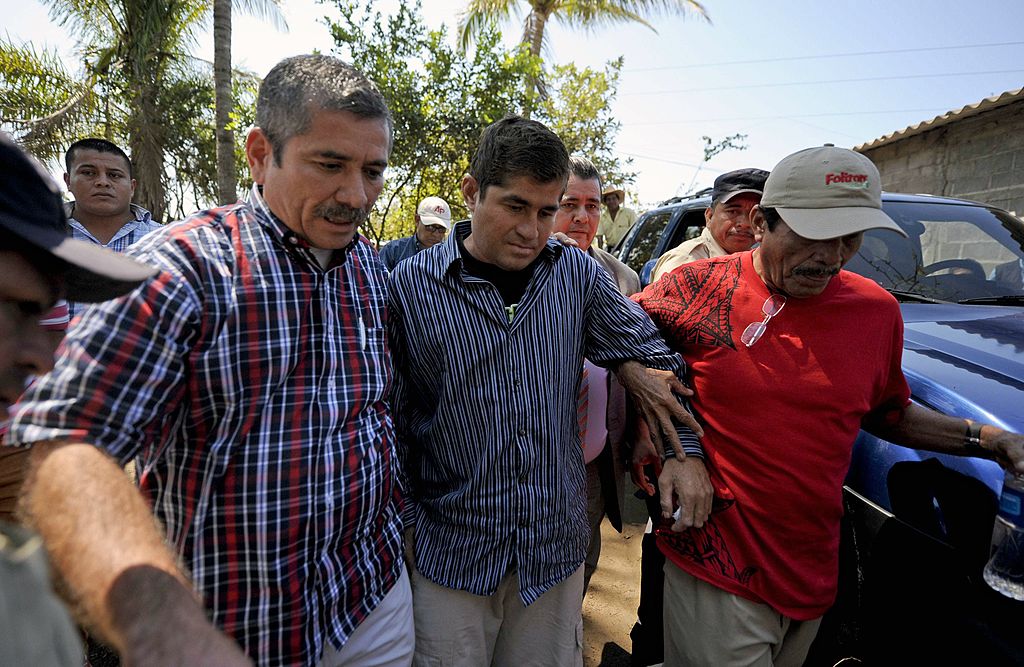 JOSE CABEZAS/AFP, Getty Images
JOSE CABEZAS/AFP, Getty Images
He Grieved
Alvarenga grabbed Cordoba and cried out, “Don’t leave me alone!”—but it was too late. Clutching the body, he sobbed for hours.
But by the next morning, he was already starting to lose it.
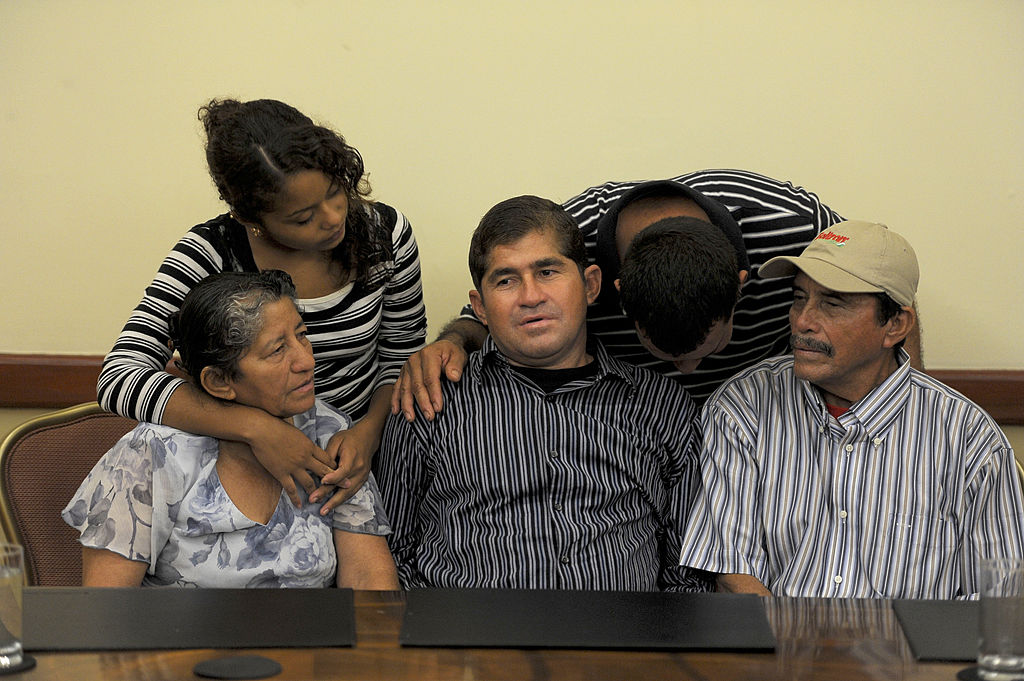 JOSE CABEZAS/AFP, Getty Images
JOSE CABEZAS/AFP, Getty Images
He Talked To The Body
Alvarenga started talking to Cordoba’s body: “How do you feel? How was your sleep? I slept good, and you? Have you had breakfast?” The easiest way for Alvarenga’s tormented mind to function was just to pretend that Cordoba was still alive.
And it went on longer than you'd think.
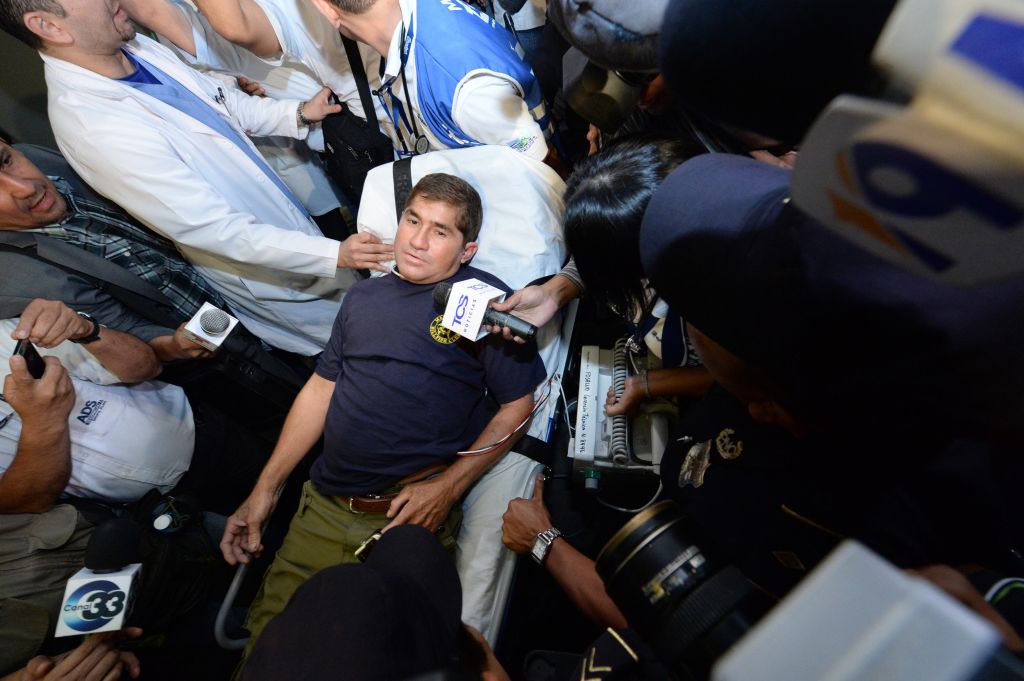 Marvin RECINOS/AFP, Getty Images
Marvin RECINOS/AFP, Getty Images
He Did It For A Week
Alvarenga claims that it was only on a moonless night, six days later, that he was sitting in his boat, carrying on a full conversation, that it finally hit him: He was talking to a corpse.
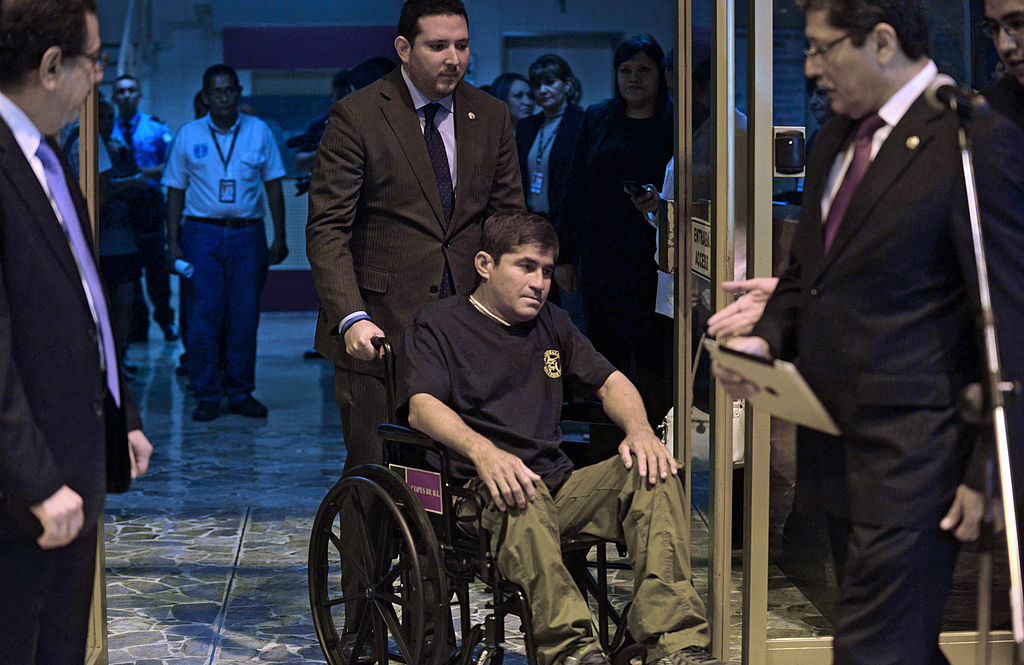 JOHAN ORDONEZ/AFP, Getty Images
JOHAN ORDONEZ/AFP, Getty Images
He Let Him Go
Alvarenga washed Cordoba’s body as best as he could, stripped him of his clothes (grim as it was, they could be useful) and slid his body into the water. Then he fainted.
He Was Worse Off Than Ever
When Alvarenga awoke, the realization finally set in: He was completely alone. And the worst part was, his nightmare was only getting started.
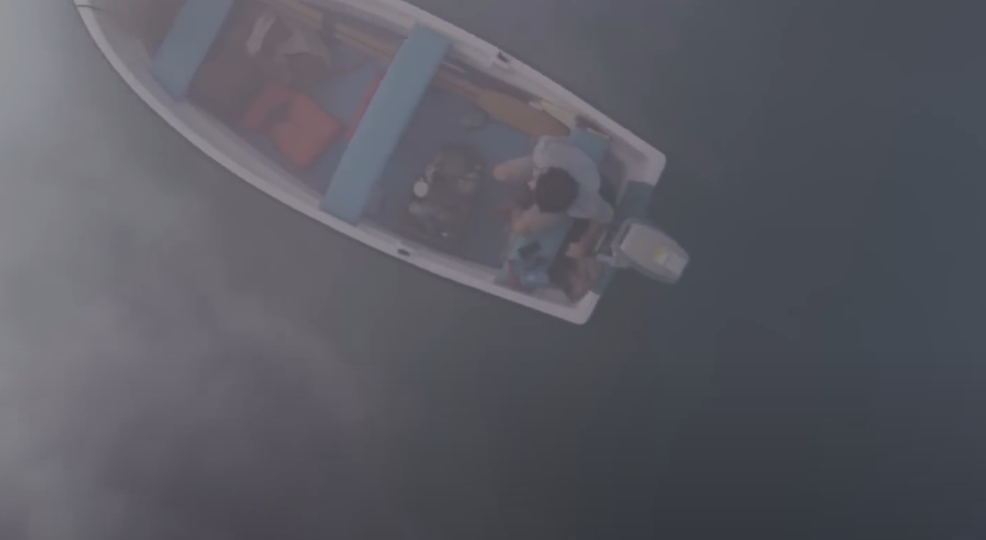 Latina Pictures, The Boat (2018)
Latina Pictures, The Boat (2018)
He Wouldn’t Give Up
Alvarenga despaired, but his mother always told him that people who took their own lives couldn’t get into heaven. This fear kept him searching for any sign of hope—but it was like fate was toying with him.
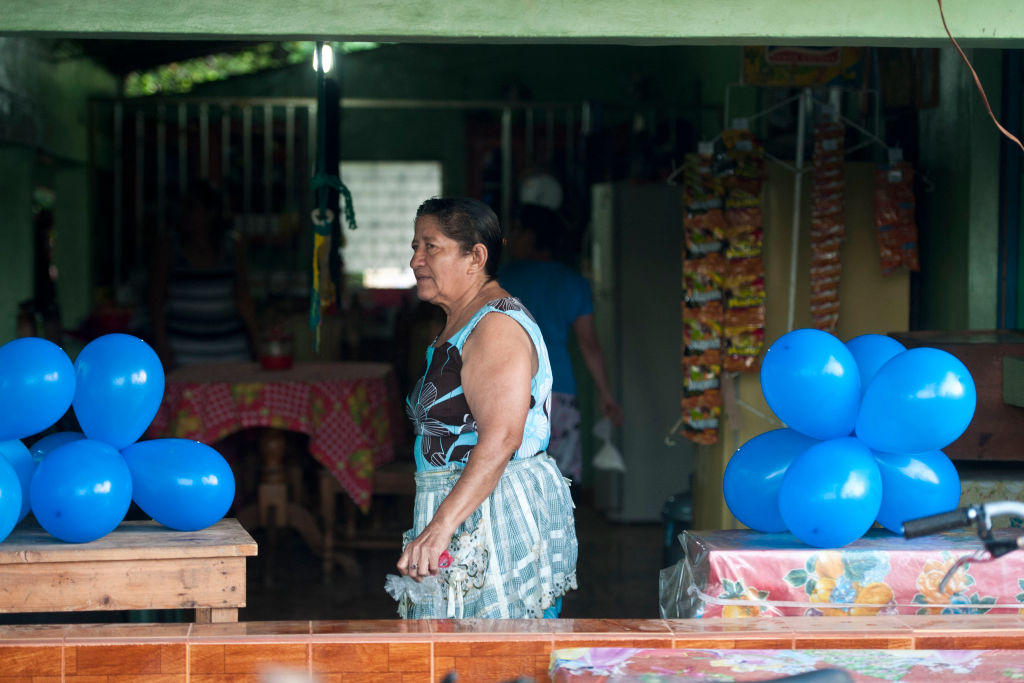 JOSE CABEZAS/AFP, Getty Images
JOSE CABEZAS/AFP, Getty Images
He Scanned The Horizon
Alvarenga spent hour after hour scanning the horizon for any sign of salvation. Soon, he thought he saw it. He spotted a speck in the distance that materialized into a cargo ship.
But here’s the thing: If the cargo ship looked like a speck in the vastness of the ocean, what do you think Alvarenga looked like?
They Came And Went
The hope Alvarenga felt when he spotted the ship soon faded—it came nowhere near close enough for him to be able to signal them in any way.
He estimates he saw about 20 more ships before his ordeal was over. None of them saw him.
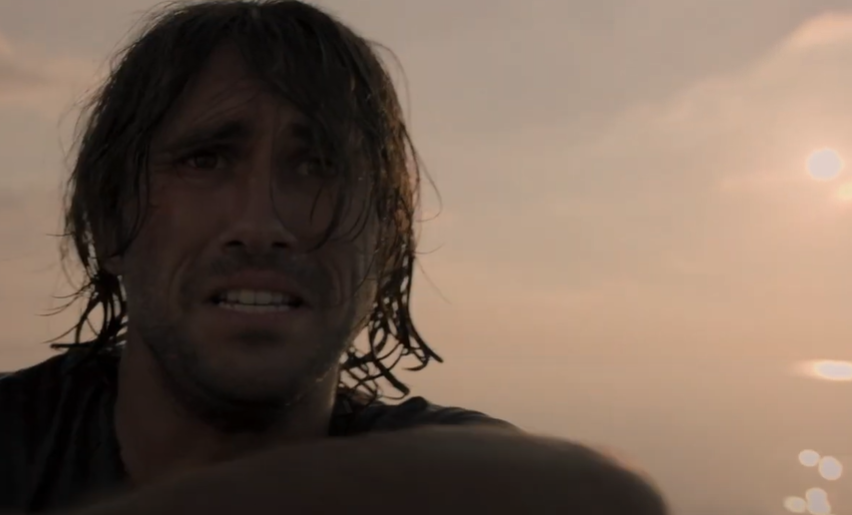 Latina Pictures, The Boat (2018)
Latina Pictures, The Boat (2018)
He Escaped Into His Mind
As he drifted further out to sea, the weather seemed to grow more calm. Alvarenga was surviving—but now his greatest enemy was time.
To keep himself from going insane, he let his imagination run wild.
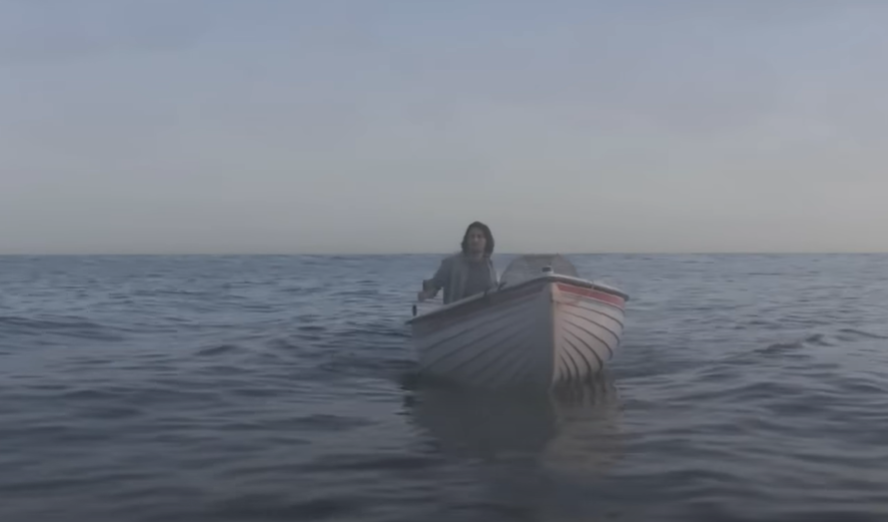 Latina Pictures, The Boat (2018)
Latina Pictures, The Boat (2018)
He Lived His Wildest Dreams
The human mind is a powerful thing—and Alvarenga gave himself over to it completely. He says that he imagined an entire alternate reality, and he can vividly remember living there, eating the best meals of his life—and spending nights with the most beautiful women imaginable. Literally.
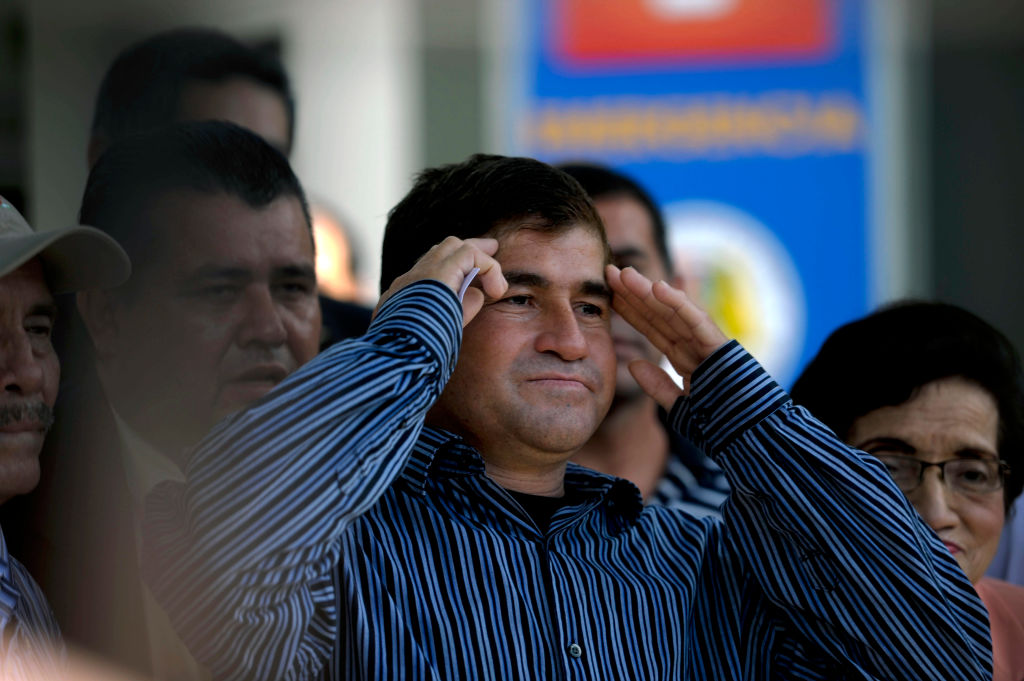 JOSE CABEZAS/AFP, Getty Images
JOSE CABEZAS/AFP, Getty Images
He Kept Track Of The Moon
Alvarenga knew how to track the cycles of the moon, and he eventually counted 15 full cycles. He spent his days walking from end to end of the boat, imagining he was exploring the world. As he put it, it was better than “just sitting there, thinking about dying”.
And he was right—because he wasn’t hanging on for nothing.
He Saw Something New
It wasn’t long into his 15th moon cycle that Alvarenga lay, staring at the sky, and something new appeared: Hundreds of shore birds. That could only mean one thing.
Soon, an island emerged out of the mist. Alvarenga thought he was hallucinating at first, but the island just kept growing bigger as he grew closer. But he wasn’t out of the woods yet. Not by a long shot.
He Knew It Wasn’t Over Yet
The island was still distant; he couldn’t swim to it yet, and the currents might still drag him back out to sea. But Alvarenga was not going to let that happen—so he made a drastic decision.
He Took A Risk
It was now or never: Alvarenga cut loose the sea anchor that had been keeping his boat stable for all these long months. If another storm appeared, he could easily capsize—but he was going to make a mad dash for that approaching shoreline.
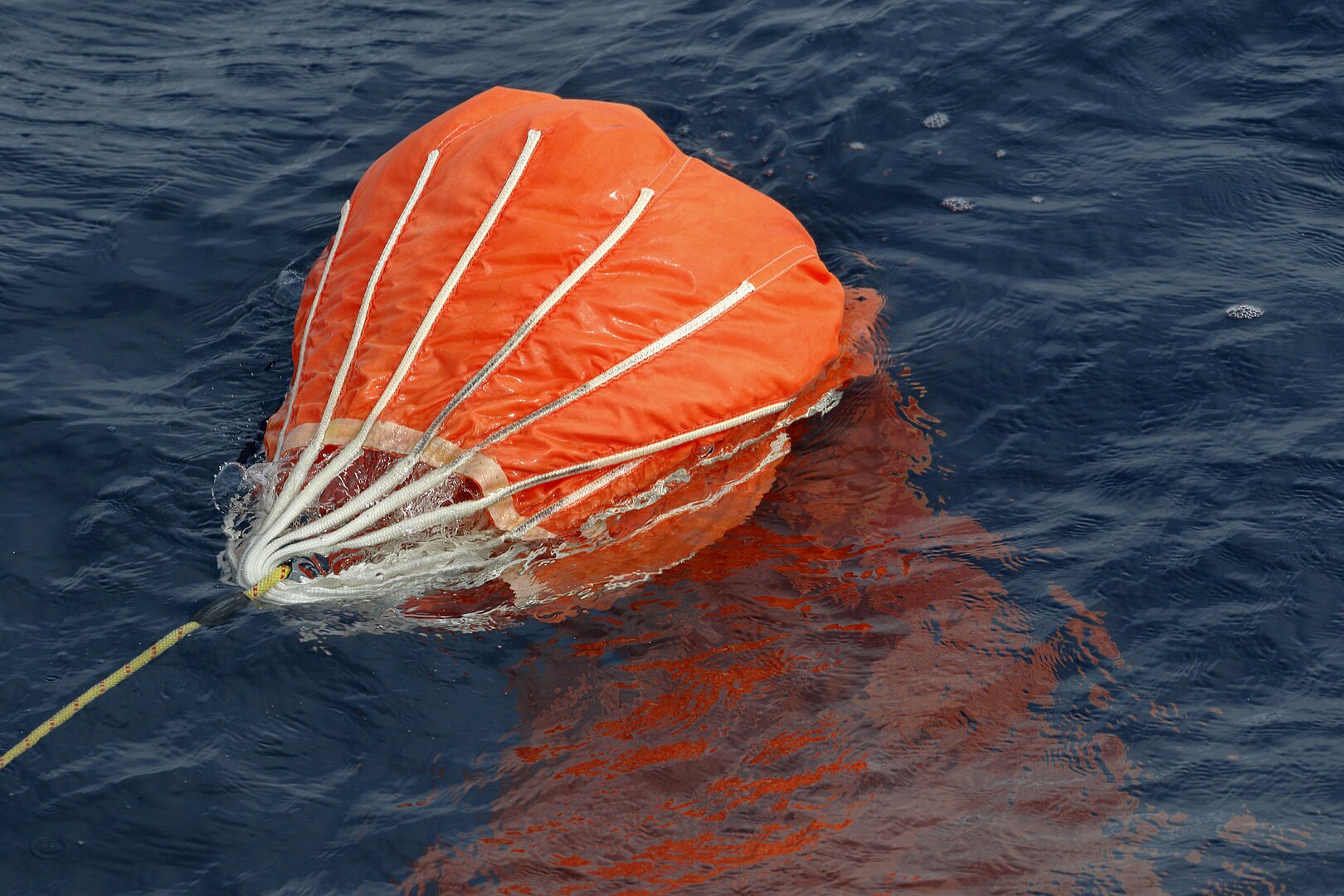 Ed Dunens, CC BY 2.0, Wikimedia Commons
Ed Dunens, CC BY 2.0, Wikimedia Commons
He Went Slow And Steady
Alvarenga was incredibly weak, and he made very slow progress towards the beach, but an hour after cutting loose his sea anchor, the shoreline was just a few yards away.
The Water Threw Him Out
Alvarenga dove into the water and paddled to shore—before a large wave picked him up and threw him on the beach.
It’s like after 14 months, the ocean was sick of him.
He Was Skin And Bones
Alvarenga was a shadow of the boisterous man he once was, nothing left but skin and bones. He couldn’t stand for more than a couple seconds, but he dragged himself up onto shore. But now there’s the question: Where on earth was he?
It turns out, if the ocean was a dartboard, Alvarenga had just hit the bullseye.
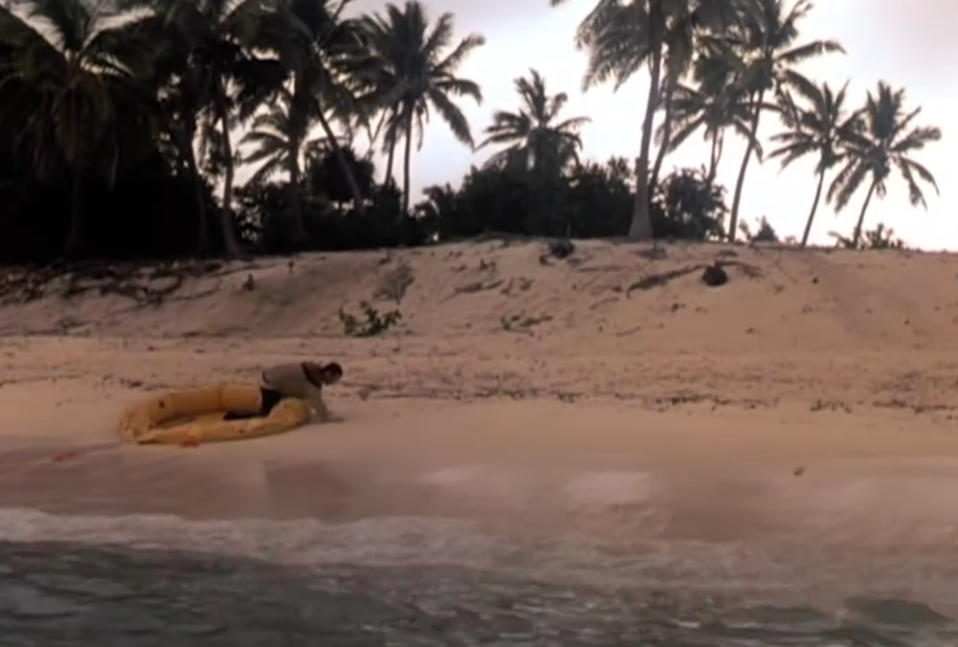 Twentieth Century, Cast Away (2000)
Twentieth Century, Cast Away (2000)
He Was In One Of The Most Remote Places On Earth
Alvarenga had washed up on shore on Ebon Atoll, a tiny, football field-sized island toward the southern tip of the Marshall Islands. The closest land was Australia, 2,500 miles southwest. If he’d missed Ebon, he likely wouldn’t have seen land until Papua New Guinea—over 3,000 miles away.
Alvarenga was incredibly lucky—well, as lucky as someone who was lost at sea for over a year can be.
He Wasn’t Alone
Being stranded on a deserted island isn’t that much better than being stranded on a boat in the ocean—but Ebon Atoll wasn’t deserted. Soon, the emaciated Alvarenga found himself standing across from a local named Emi Libokmeto, in front of her beach house.
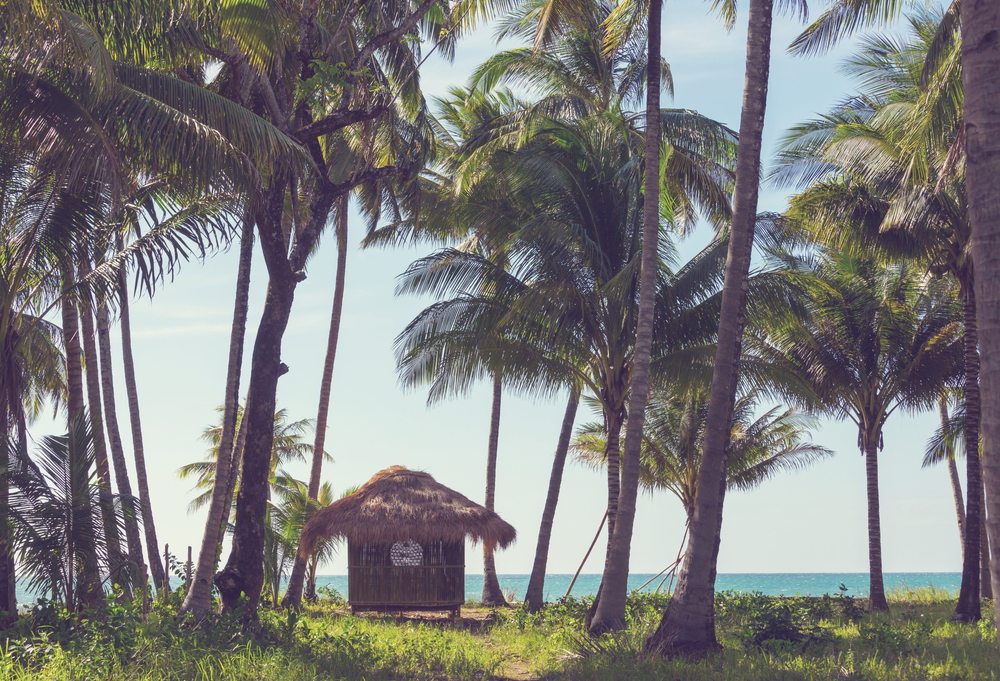 Galyna Andrushko, Shutterstock
Galyna Andrushko, Shutterstock
They Couldn’t Communicate
Alvarenga and Emi couldn’t speak the same language: There was no possible way for him to express what he’d been through.
But they talked, and laughed, and Emi and her husband Russel cared for Alvarenga all morning, before Russel took the boat into town to contact the authorities.
He Wasn’t Safe Yet
When doctors finally examined Alvarenga, they discovered just how bad his physical state had deteriorated. His body had been deprived of proper food and water for so long that he actually started getting worse once he arrived in the Marshall Islands.
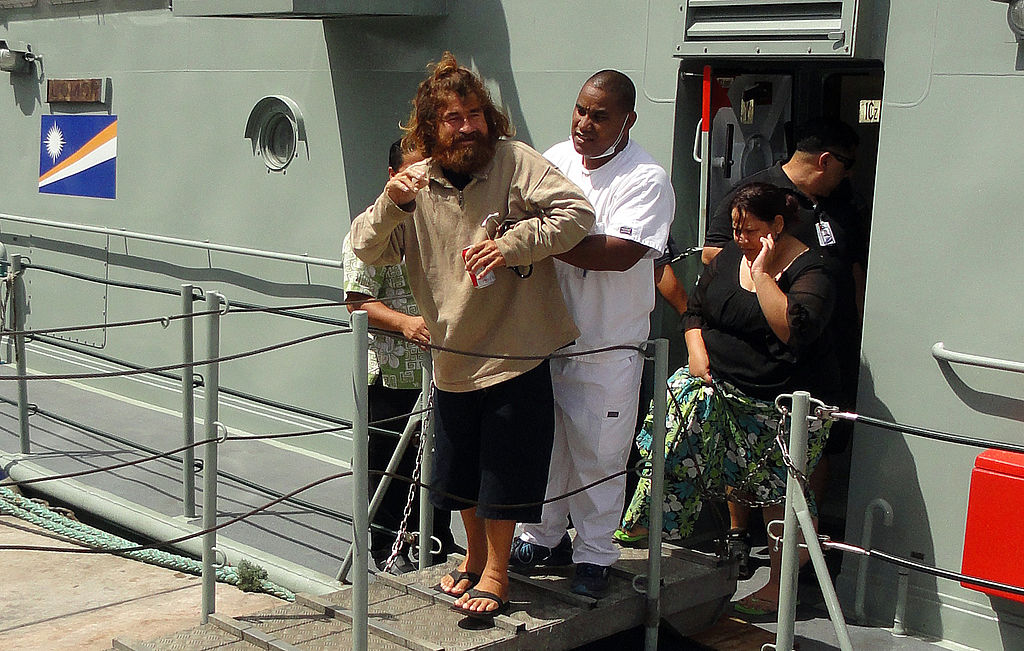 GIFF JOHNSON/AFP, Getty Images
GIFF JOHNSON/AFP, Getty Images
He Had Parasites
On top of severe anemia, all the raw birds and turtles had left Alvarenga’s liver infected with parasites. It was nearly two weeks before doctors in the Marshall Islands decided that he was strong enough to make the journey back to El Salvador to see his family.
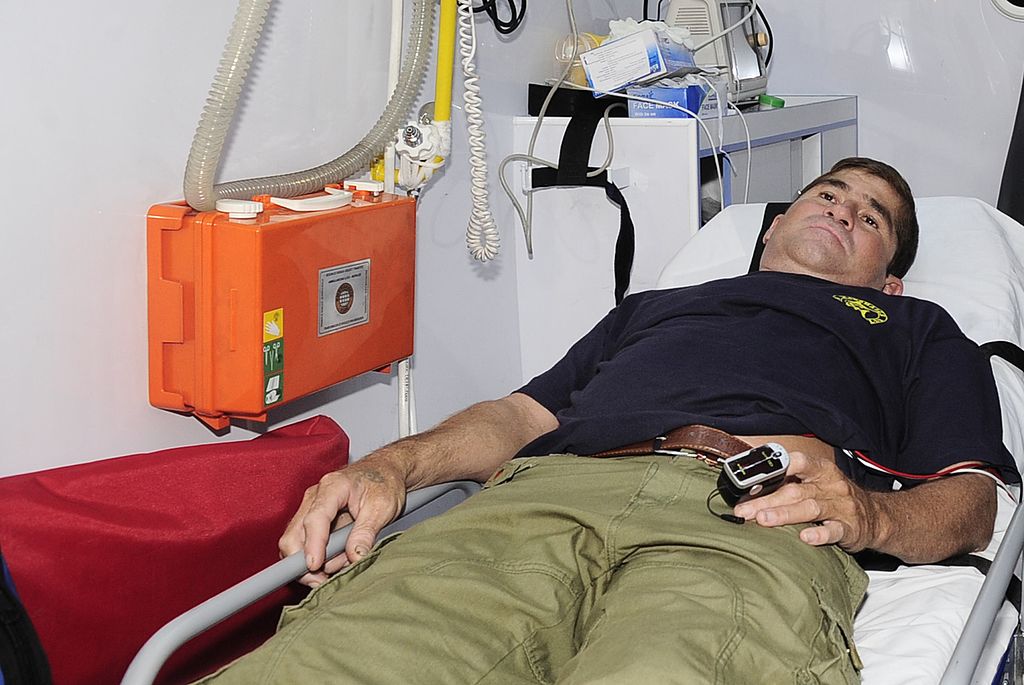 Rene Quintanilla/AFP, Getty Images
Rene Quintanilla/AFP, Getty Images
He Was Haunted
It should have been a time to celebrate and rejoice, but Alvarenga couldn’t stop thinking about Cordoba. As soon as he was well enough, he fulfilled his promise: He went back to Chiapas and tracked down Cordoba’s mother, sitting with her for hours and answering all her questions.
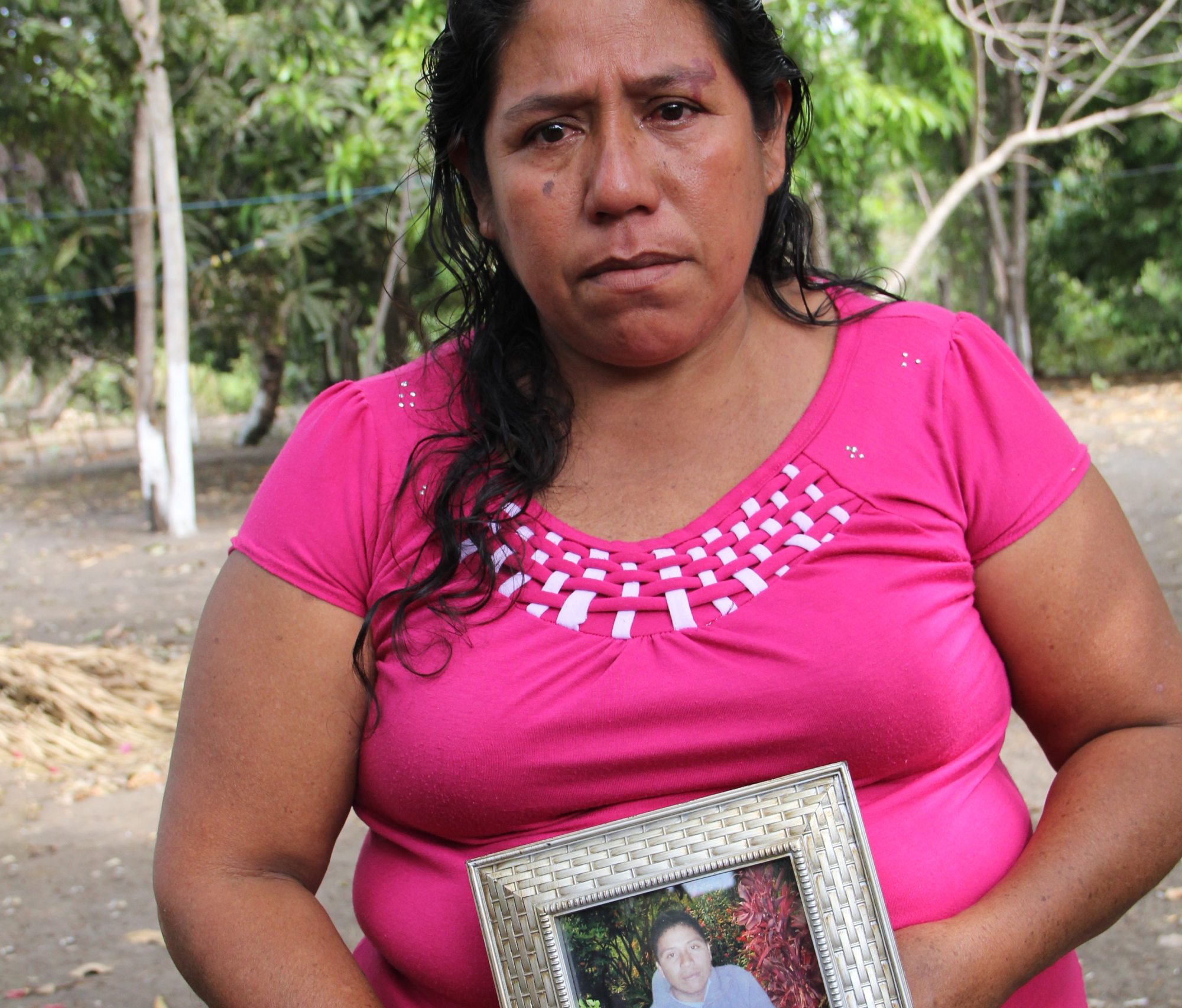 ELIZABETH RUIZ/AFP, Getty Images
ELIZABETH RUIZ/AFP, Getty Images
He Was Haunted
At 438 days, Alvarenga had survived longer at sea than anyone in recorded history. It was an incredible feat—and a double-edged sword. As if Alvarenga hadn’t been through enough already, the media hounded him constantly, desperate to hear every harrowing detail.
Soon, Alvarenga had to hire a lawyer just to deal with the constant media intrusions.
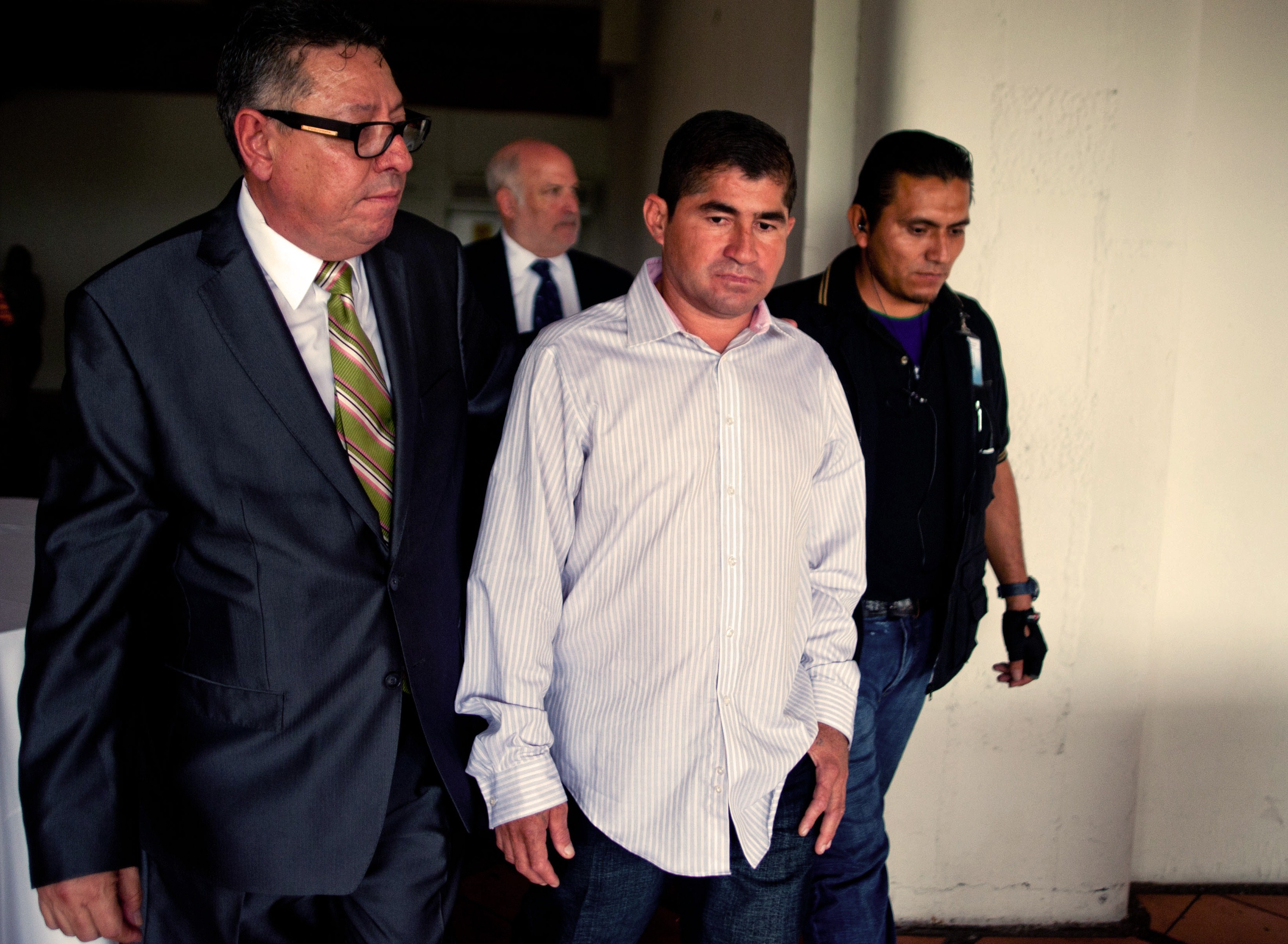 JOSE CABEZAS/AFP, Getty Images
JOSE CABEZAS/AFP, Getty Images
They Didn’t Believe Him
Alvarenga's trial was the longest confirmed time spent adrift at sea—but there were a lot of skeptics who were quick to doubt Alvarenga's incredible story. Despite many experts backing up his story, Alvarenga still had to take a lie-detector test in 2014 (he passed).
He Feared The Water
Understandably, Alvarenga developed a crippling fear of water after his trial.
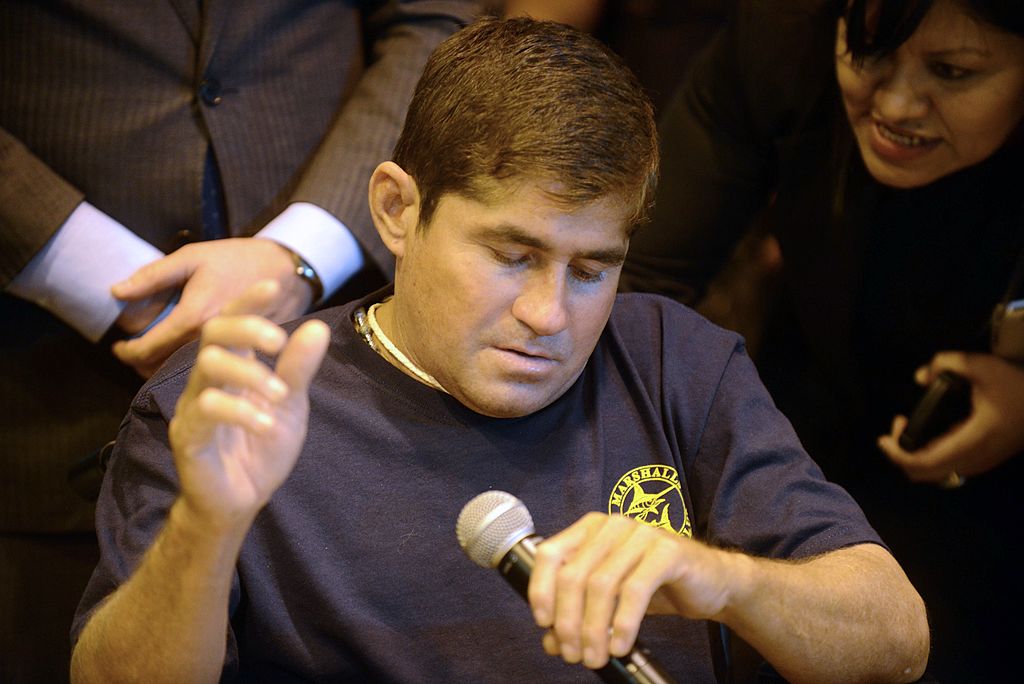 JOHAN ORDONEZ/AFP, Getty Images
JOHAN ORDONEZ/AFP, Getty Images
He Told His Story
In 2015, Alvarenga finally told his story in full. He gave a series of interviews to American journalist, Jonathan Franklin, who turned them into the book 438 Days: An Extraordinary True Story of Survival at Sea. It at least got Alvarenga some money out of the ordeal—but it also dragged up painful memories.
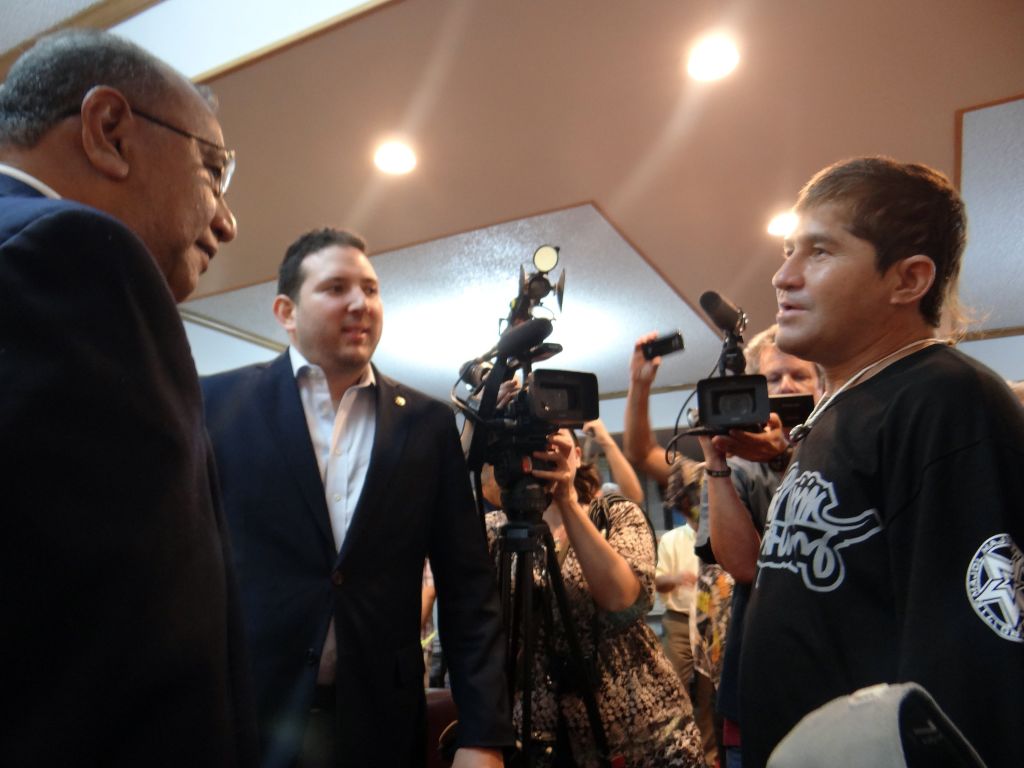 HILARY HOSIA/AFP, Getty Images
HILARY HOSIA/AFP, Getty Images
He Got Sued
After the book came out, Alvarenga was hit with an incredibly painful accusation: The family of Ezequiel Córdoba sued him for $1,000,000, claiming that he had cannibalized Córdoba's body to survive—even though Alvarenga denies it.
Some close to the story have claimed the family is likely just trying to see some of the profits that Alvarenga got from publishing the book.

